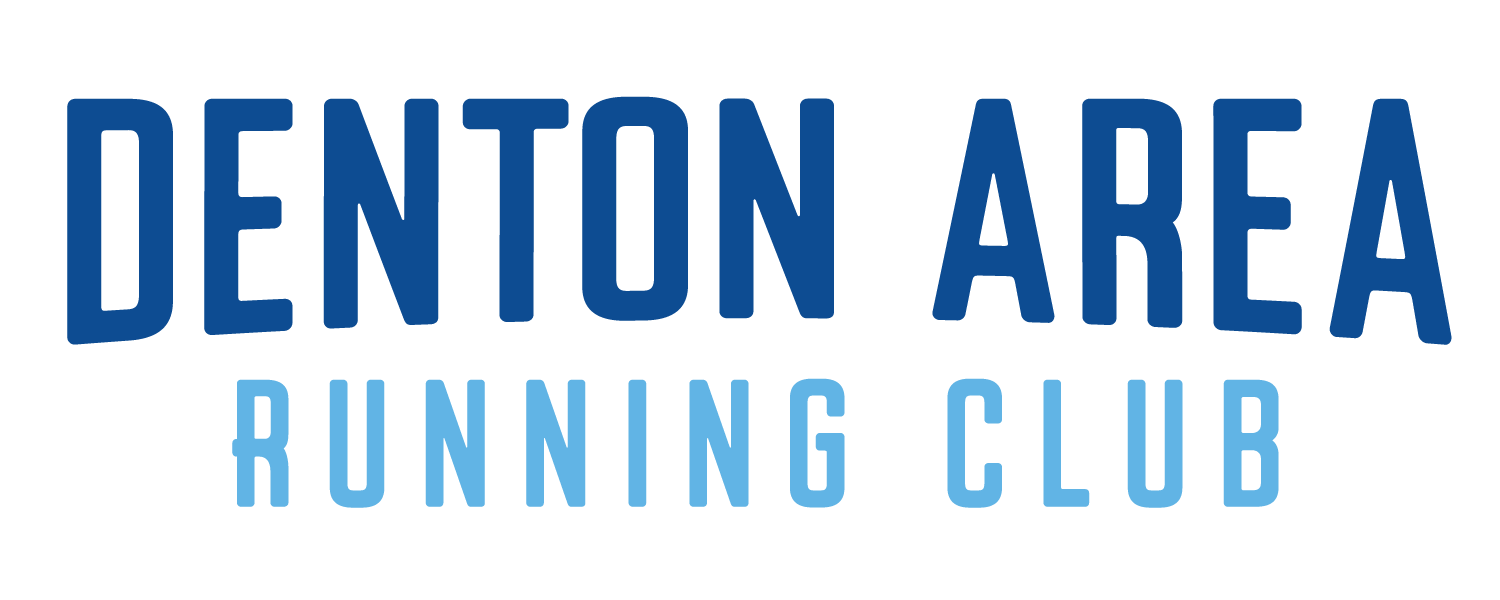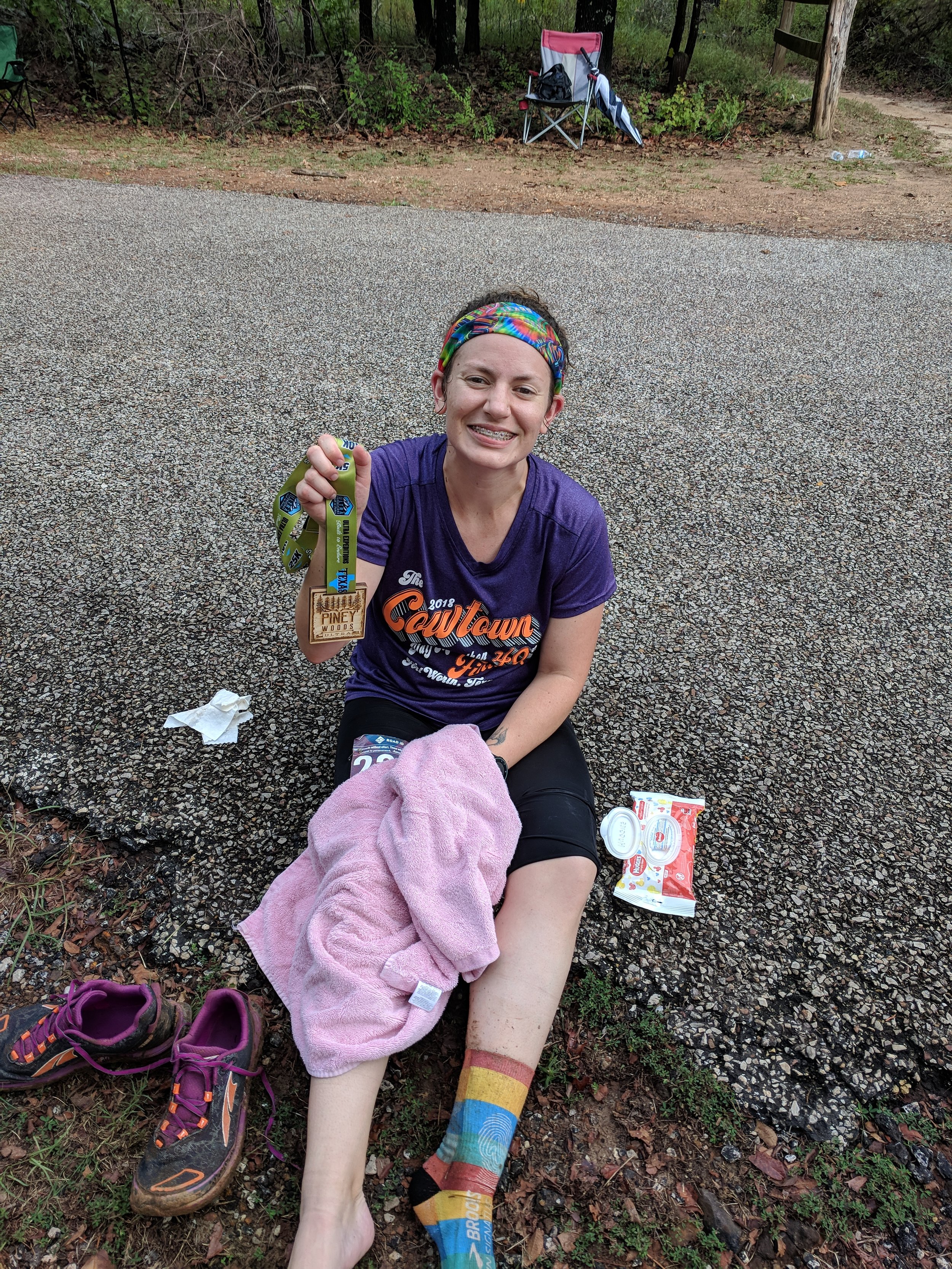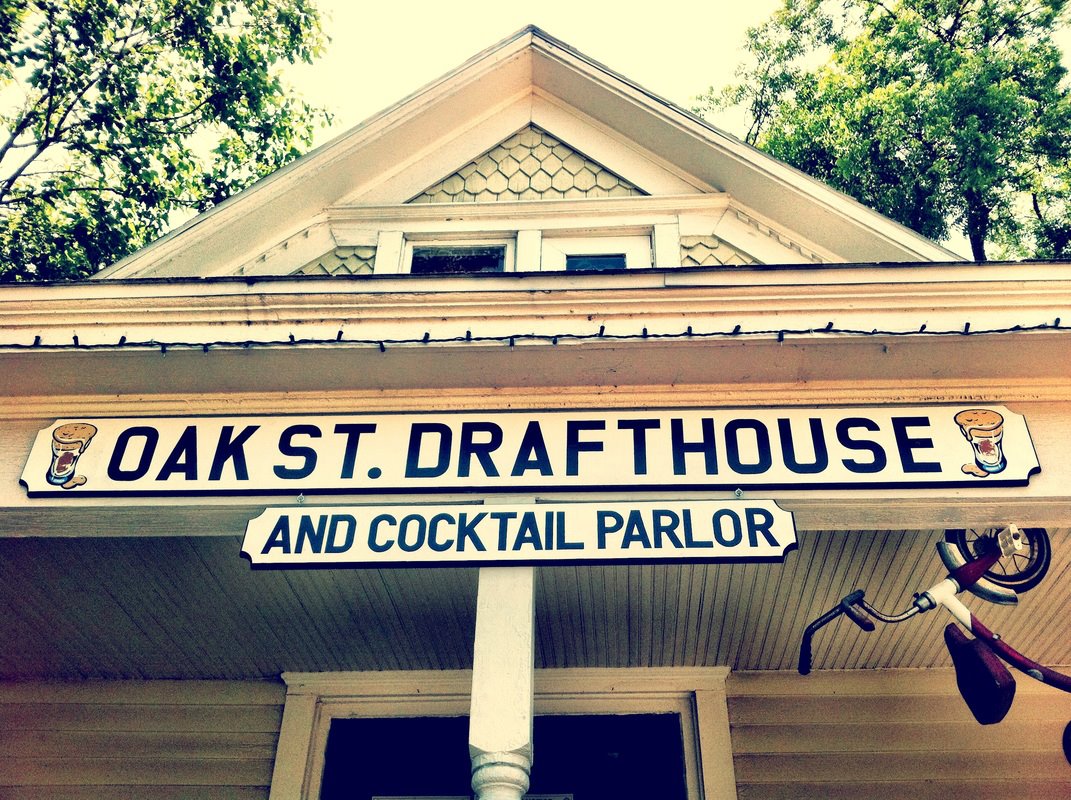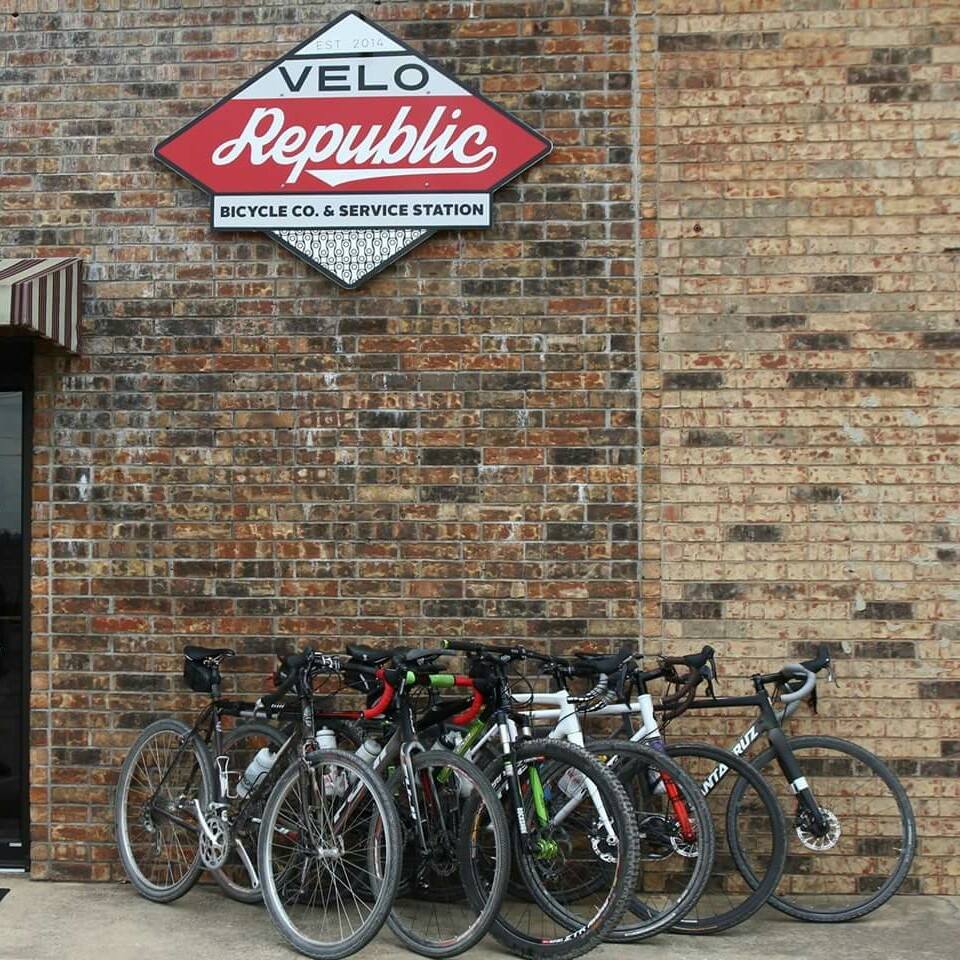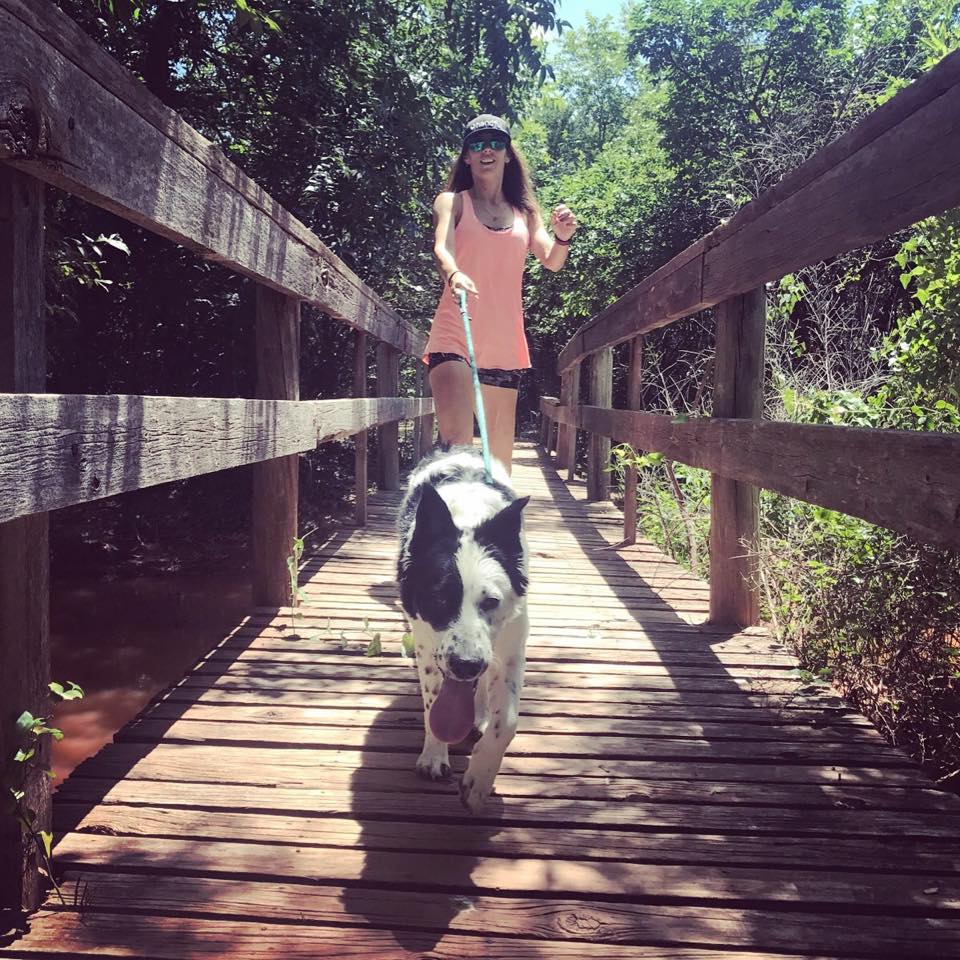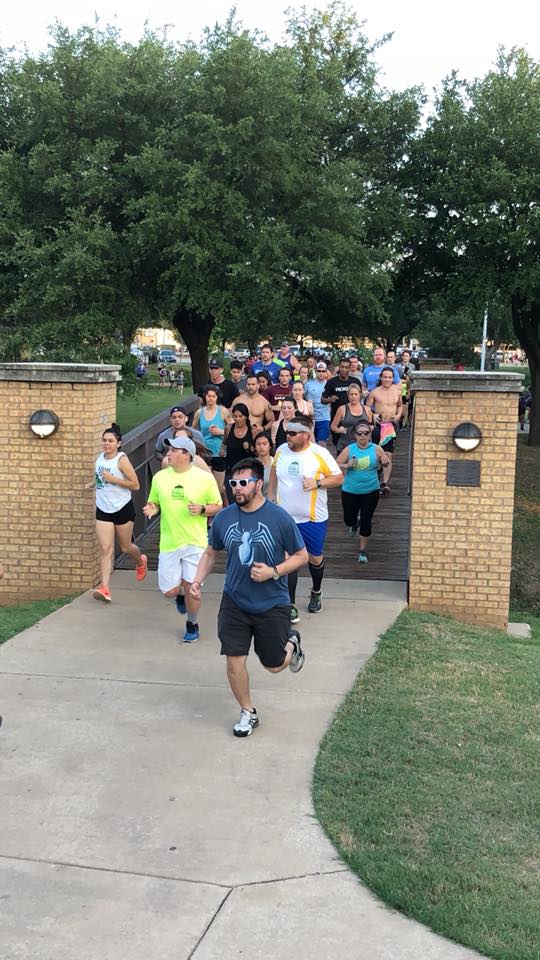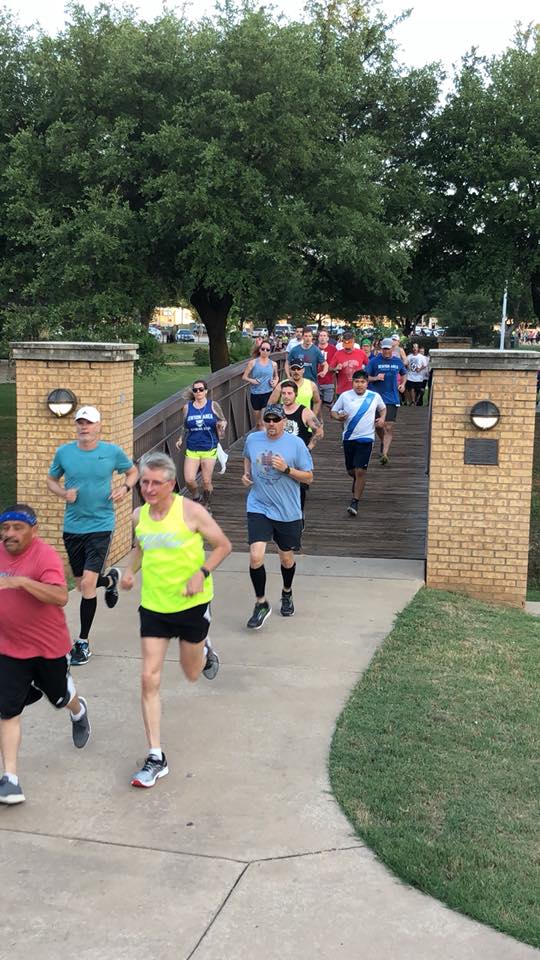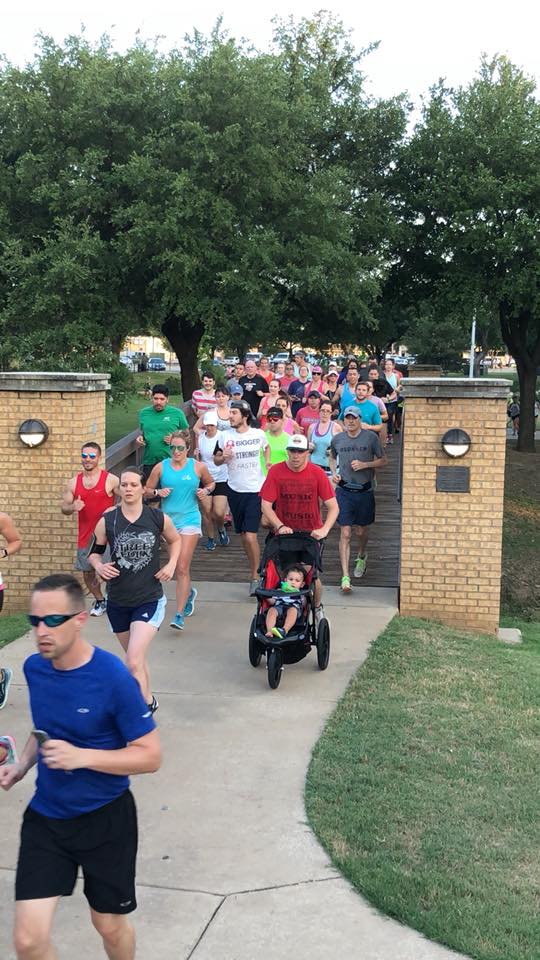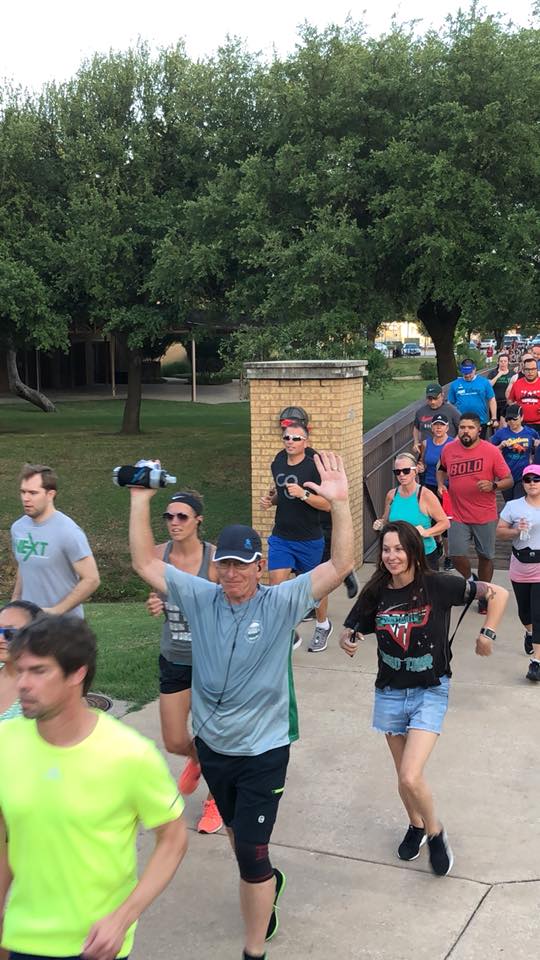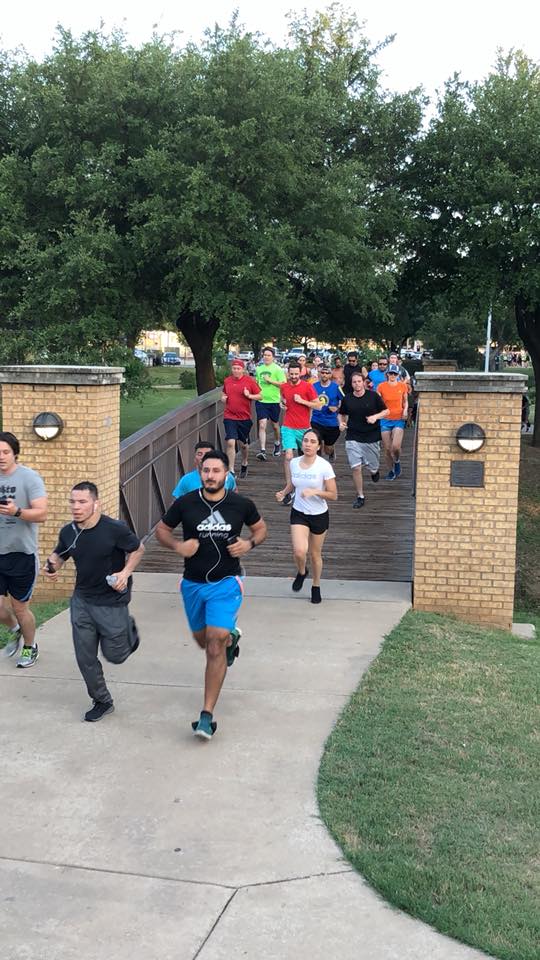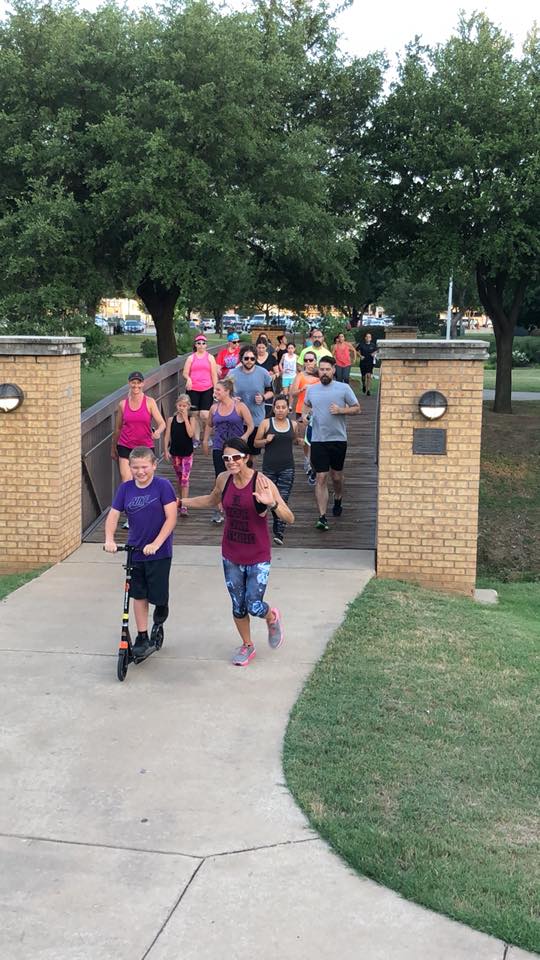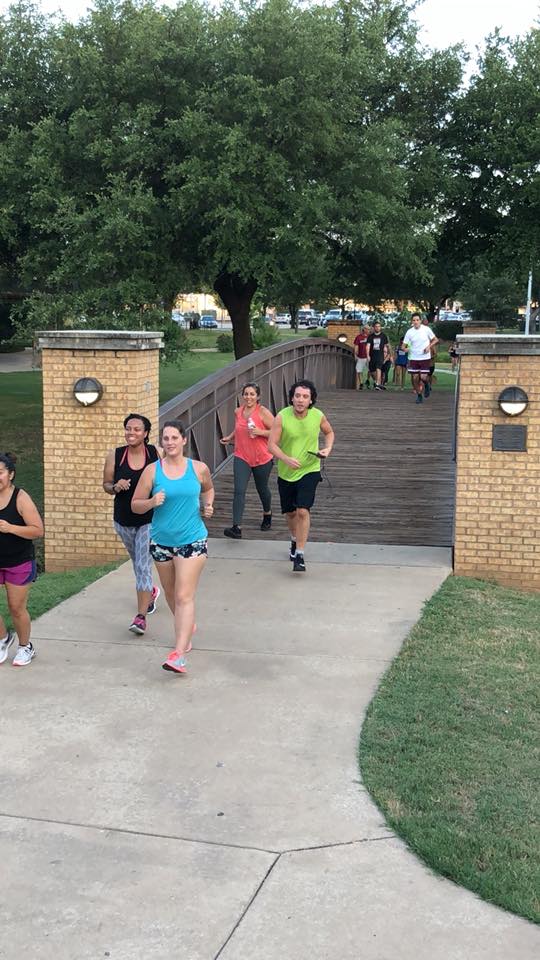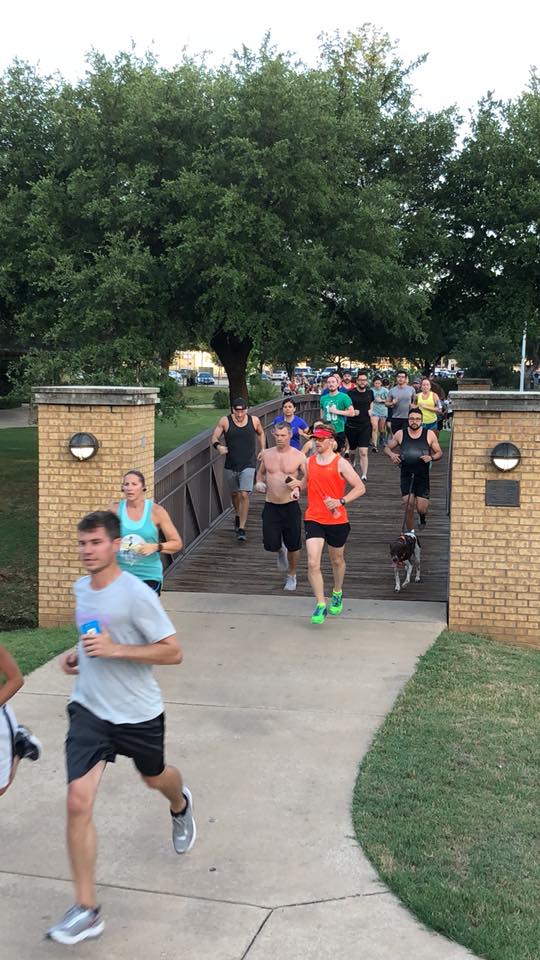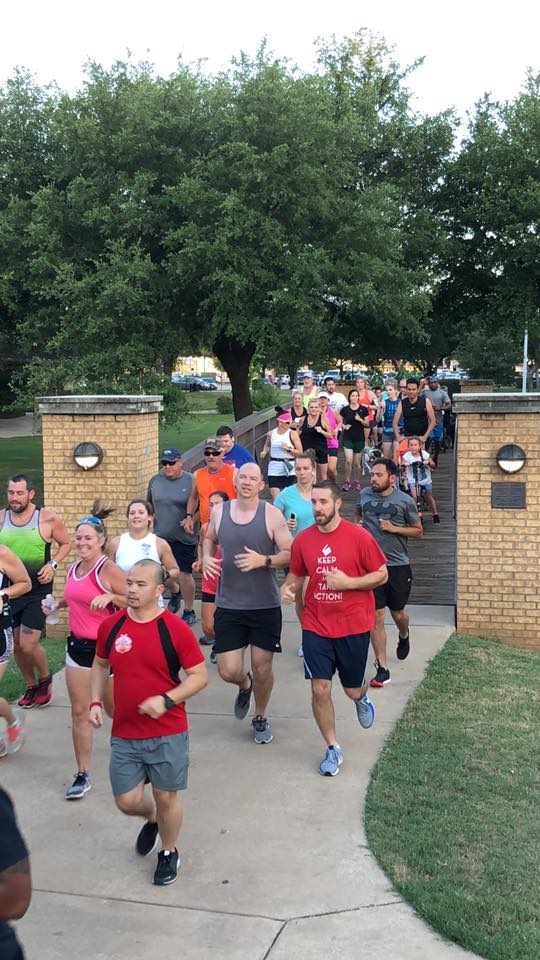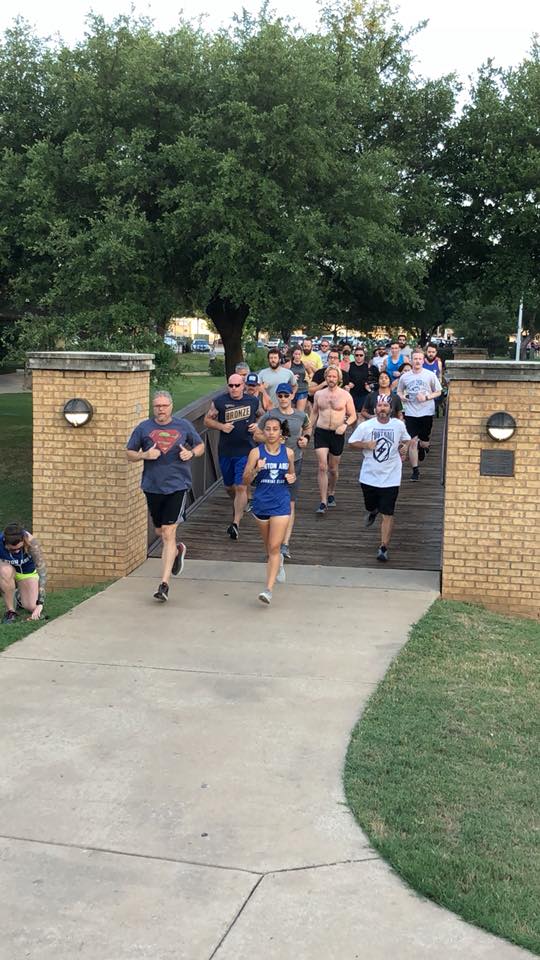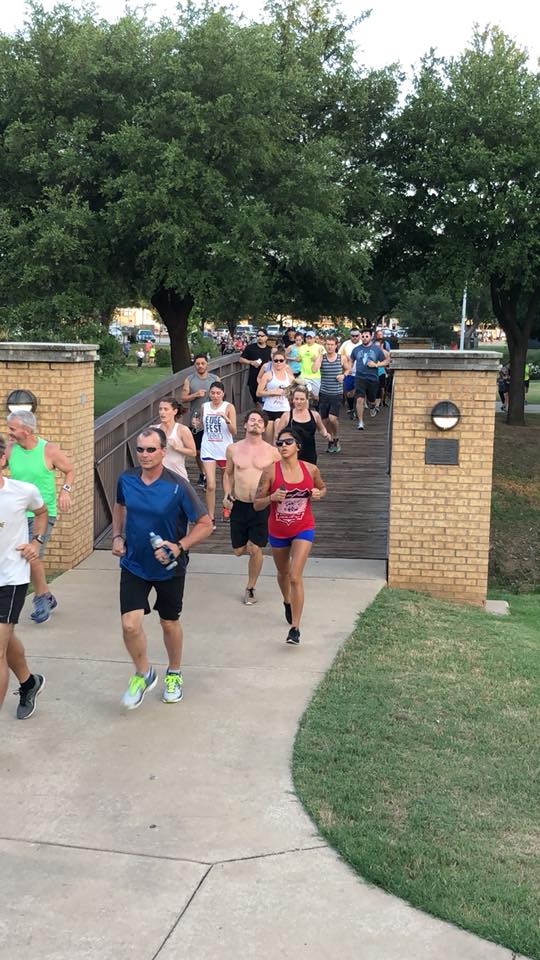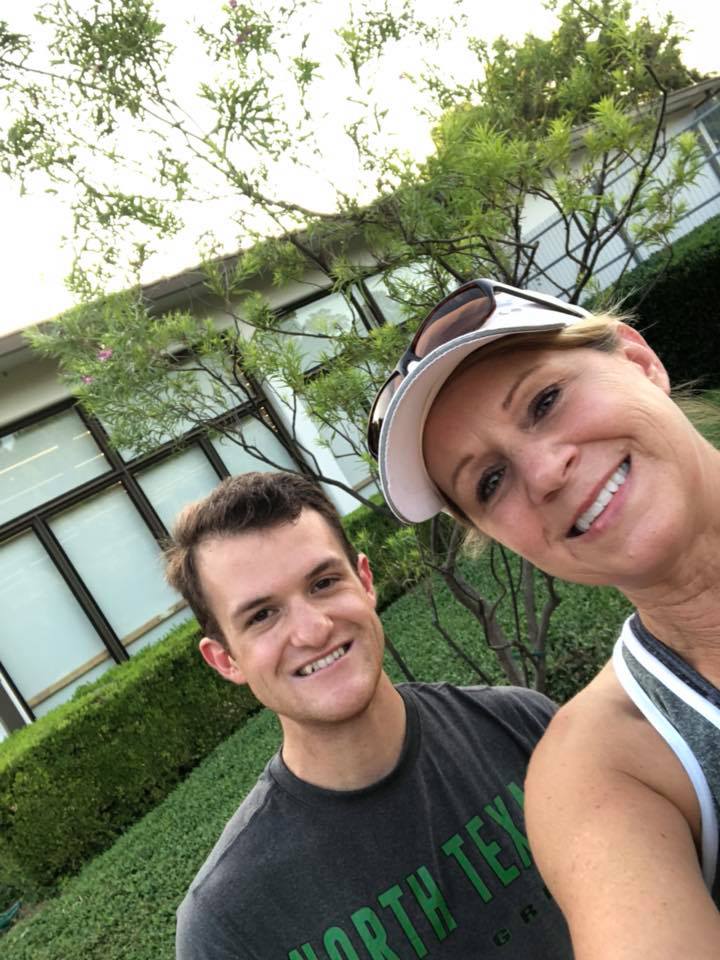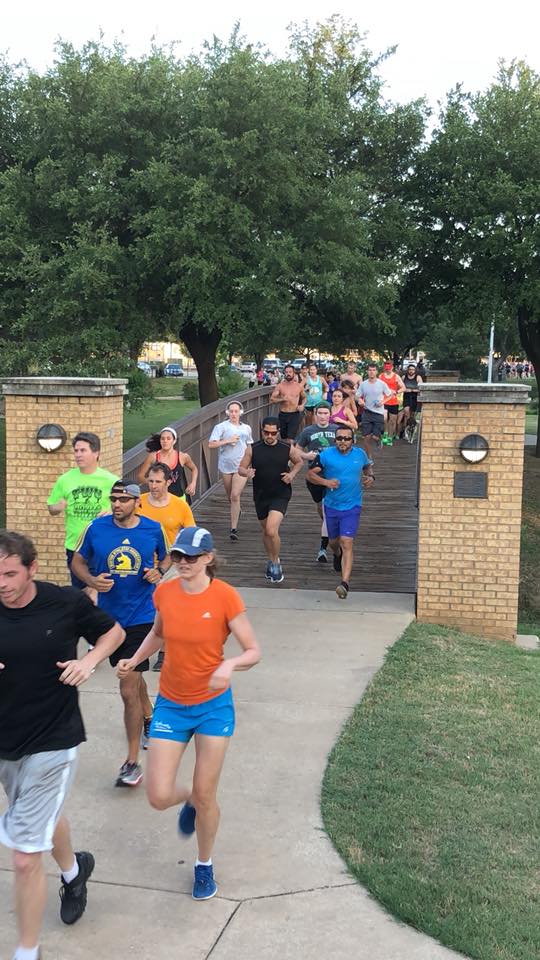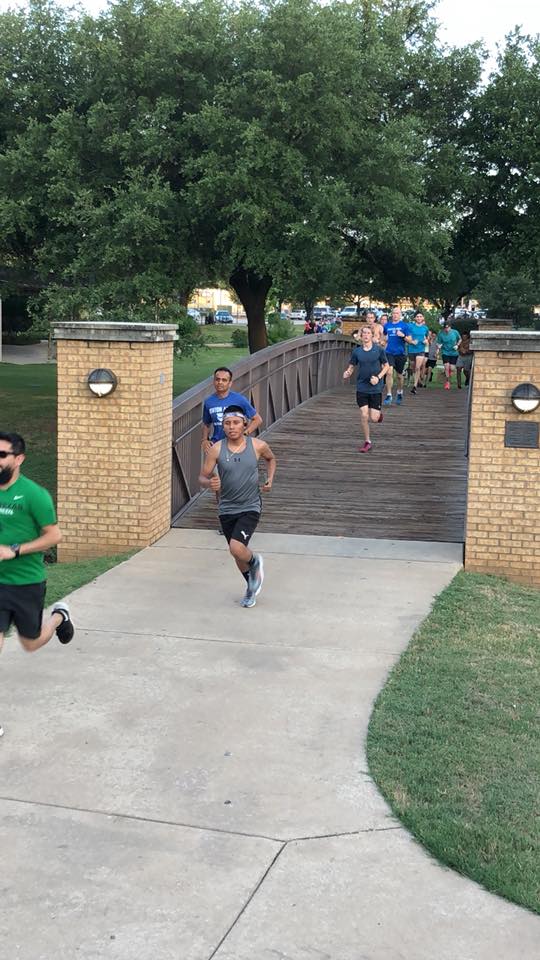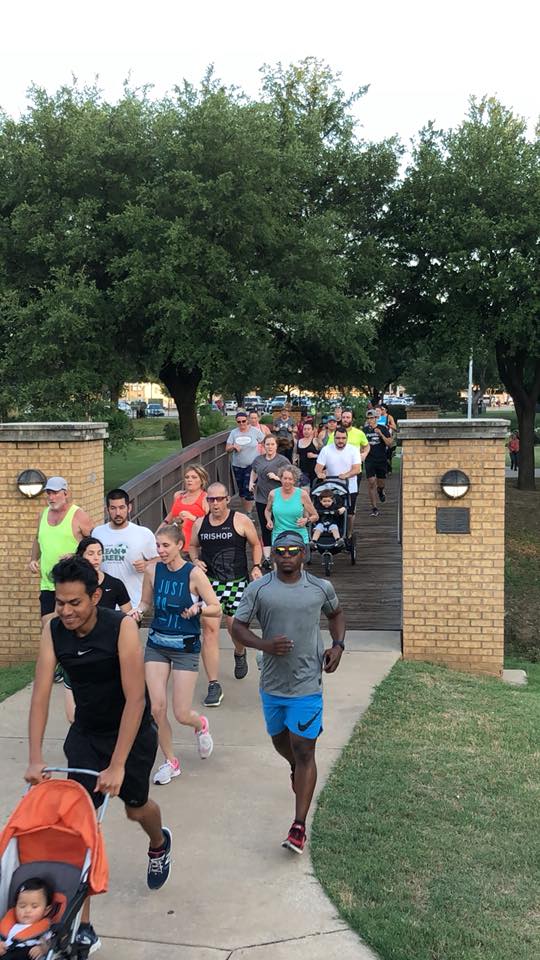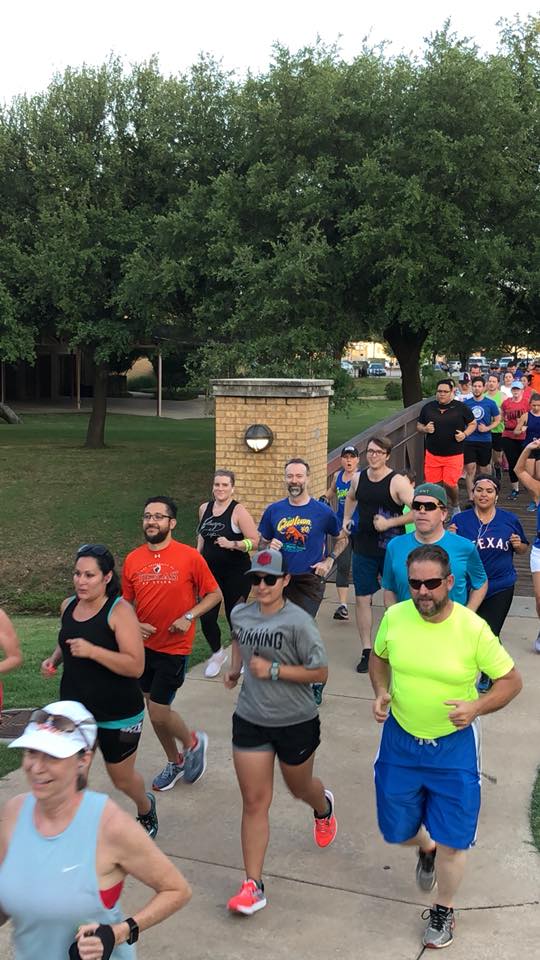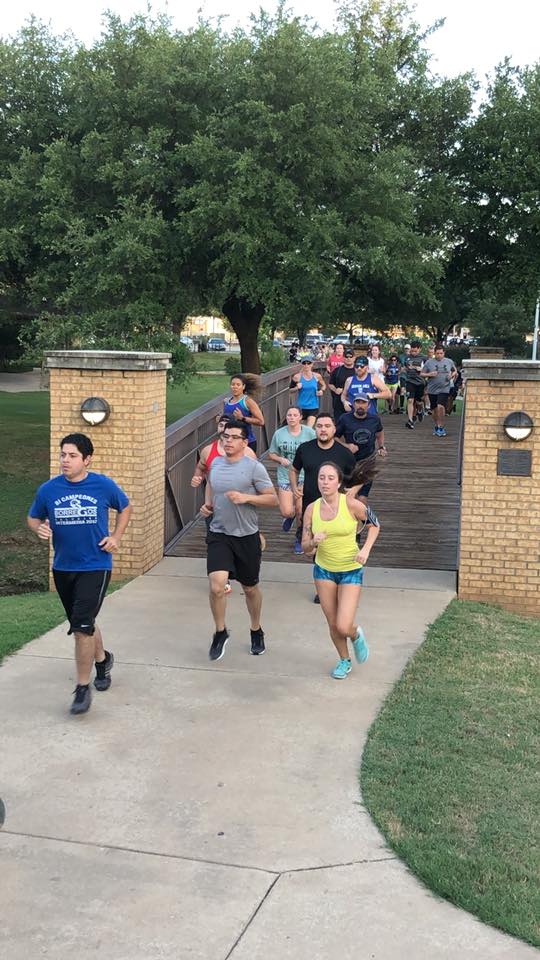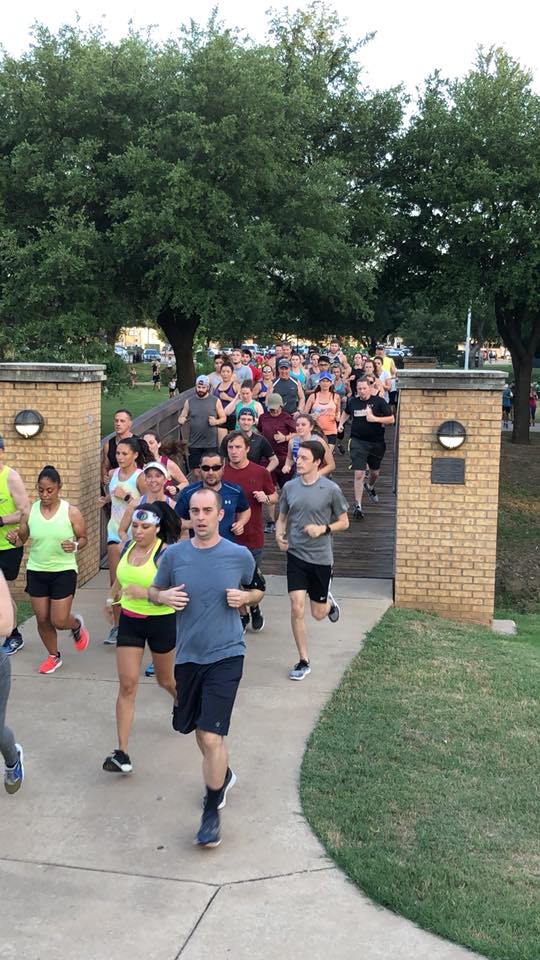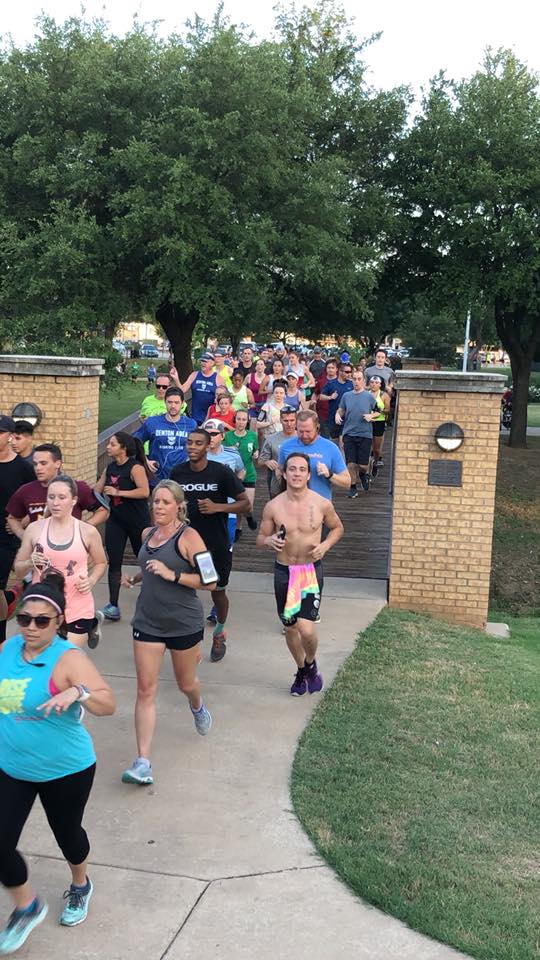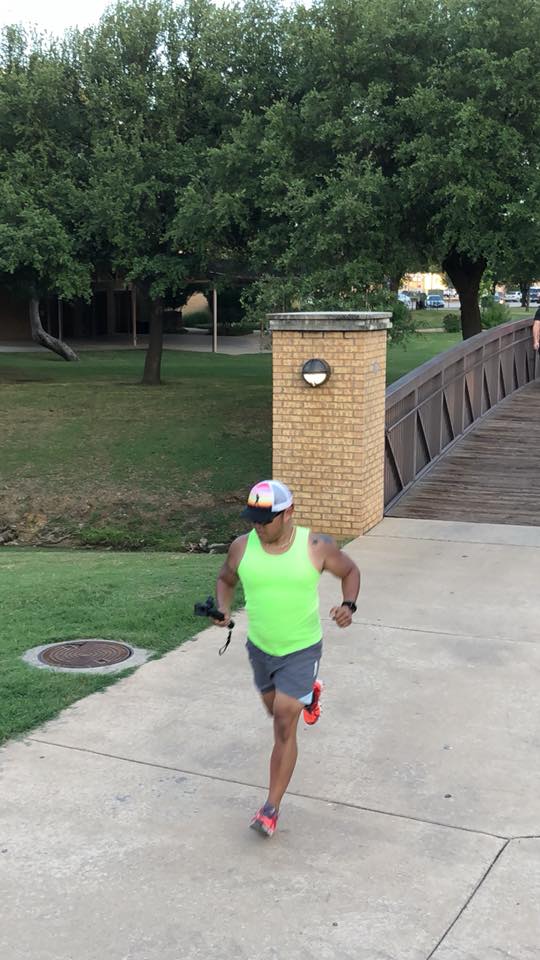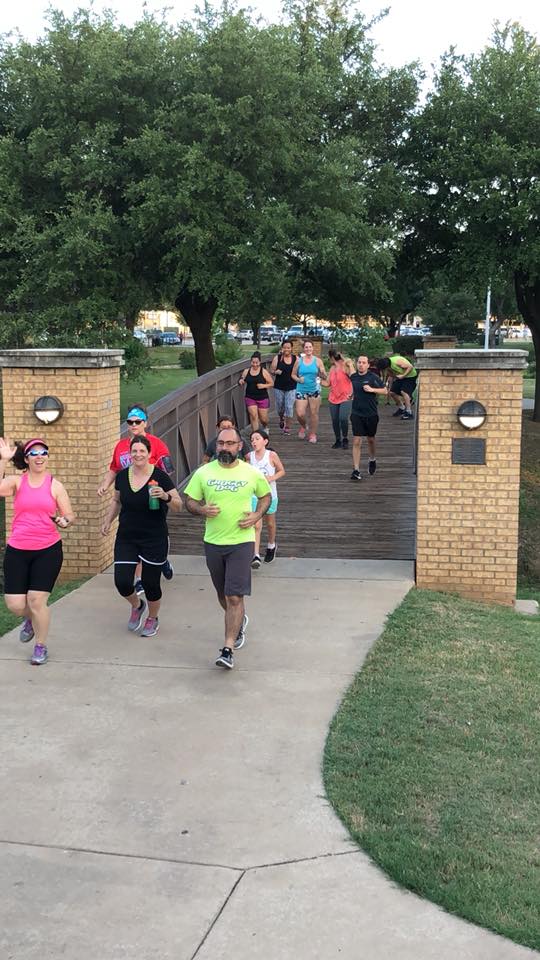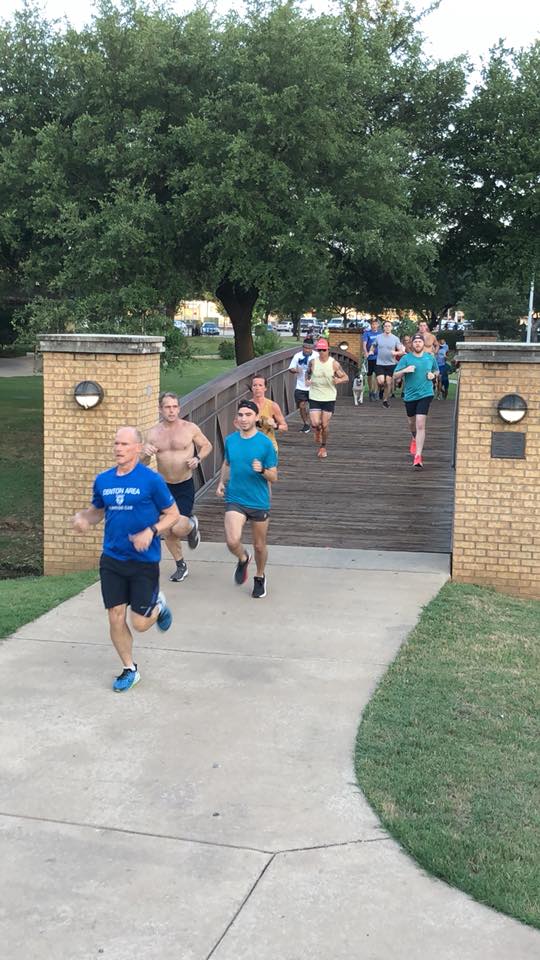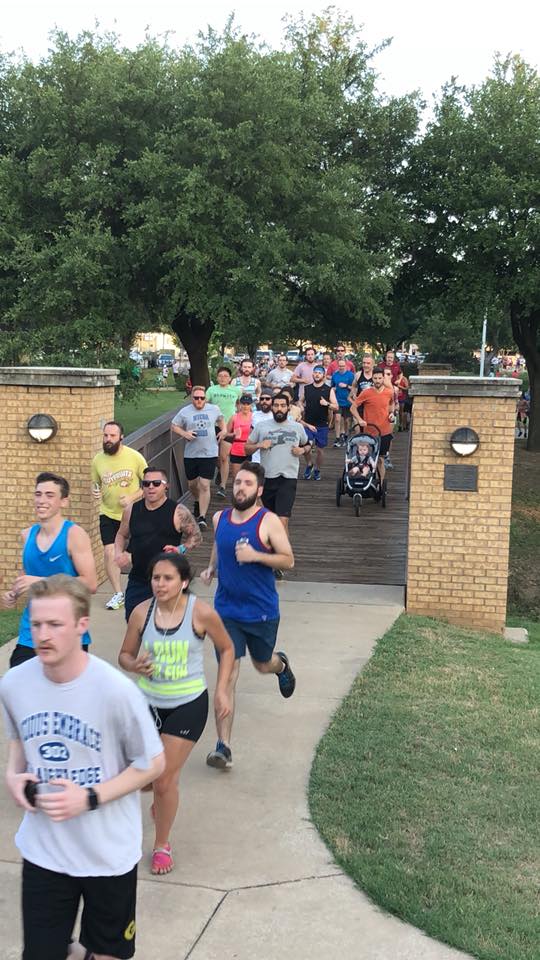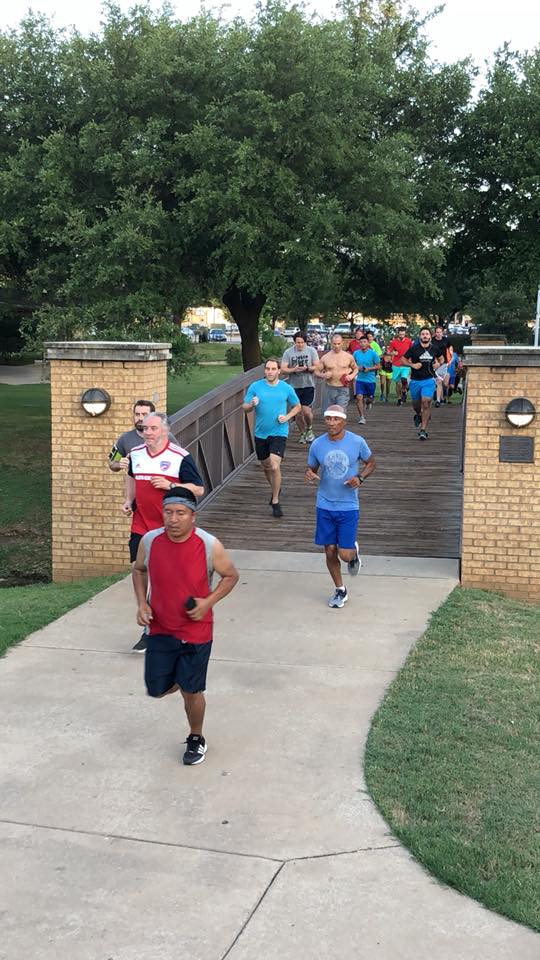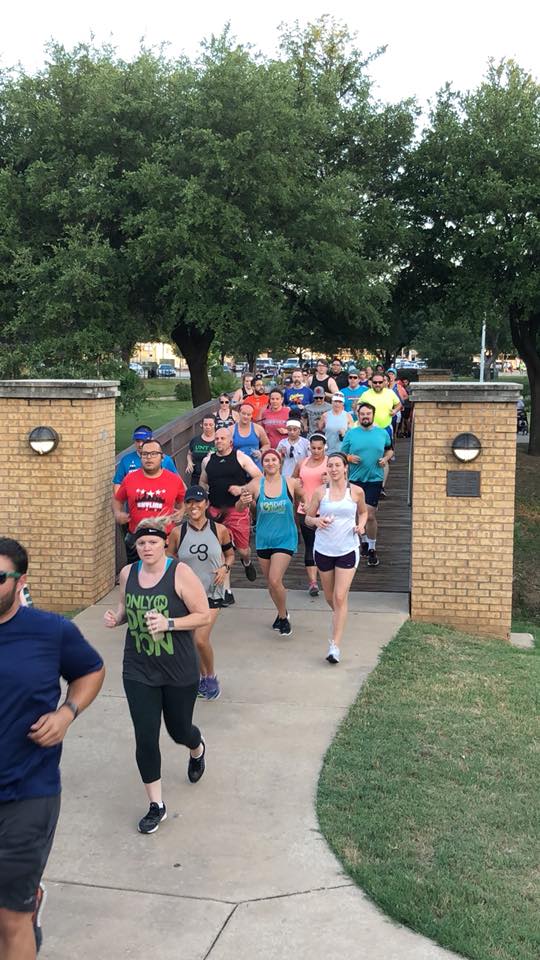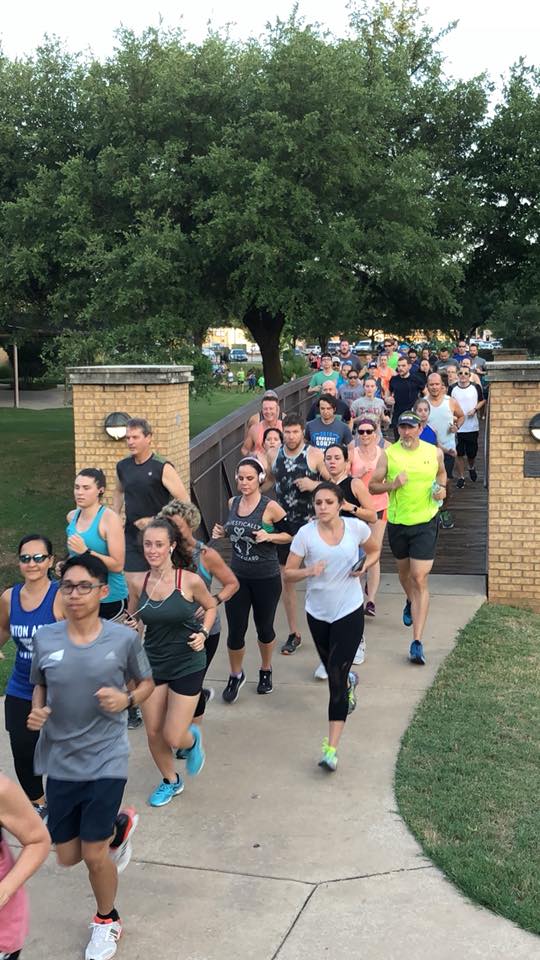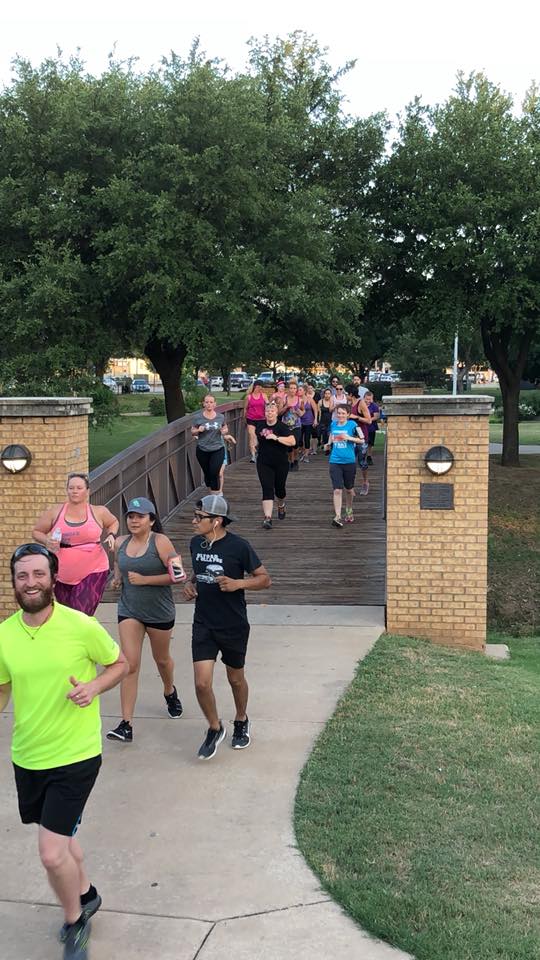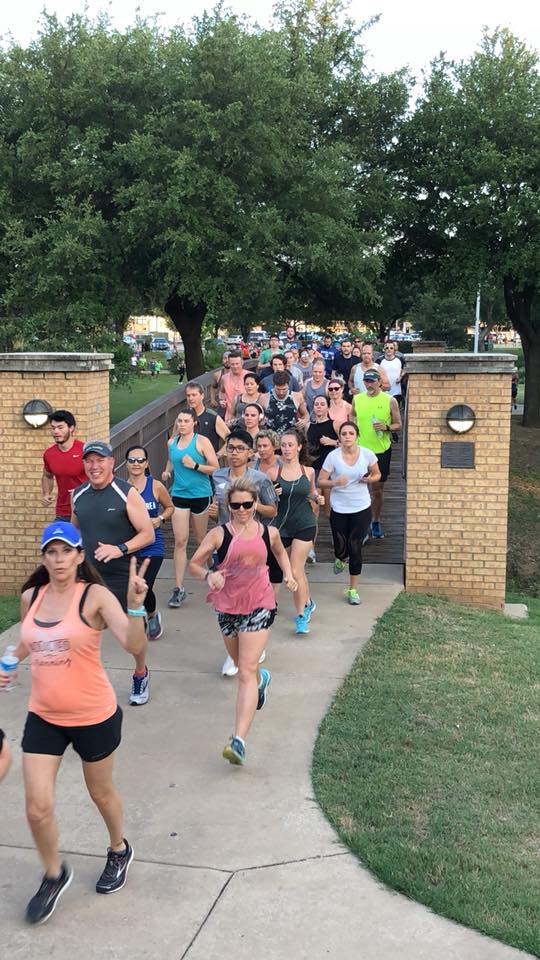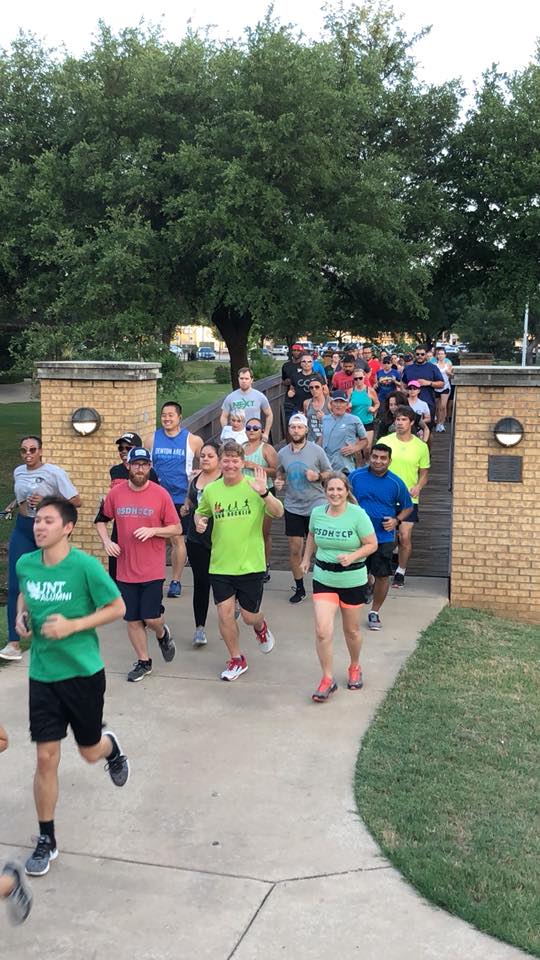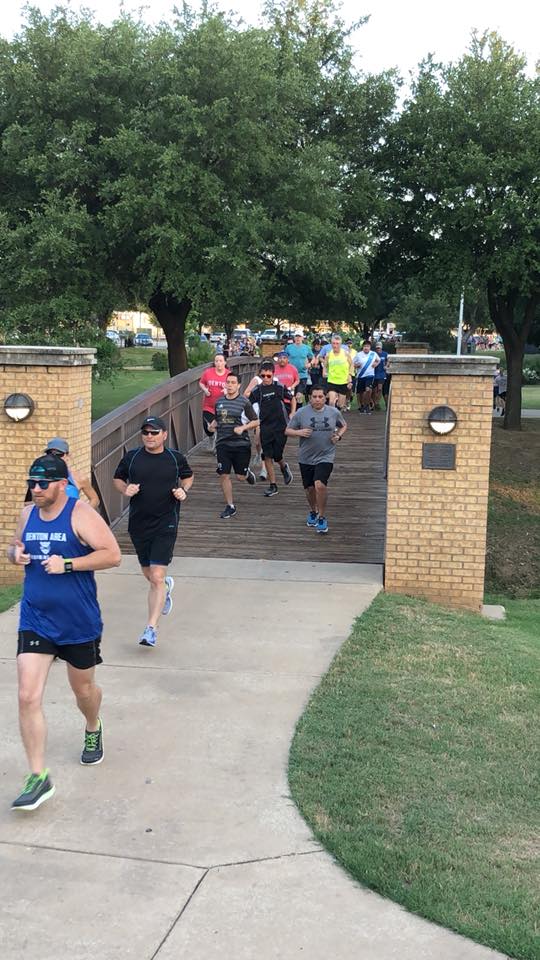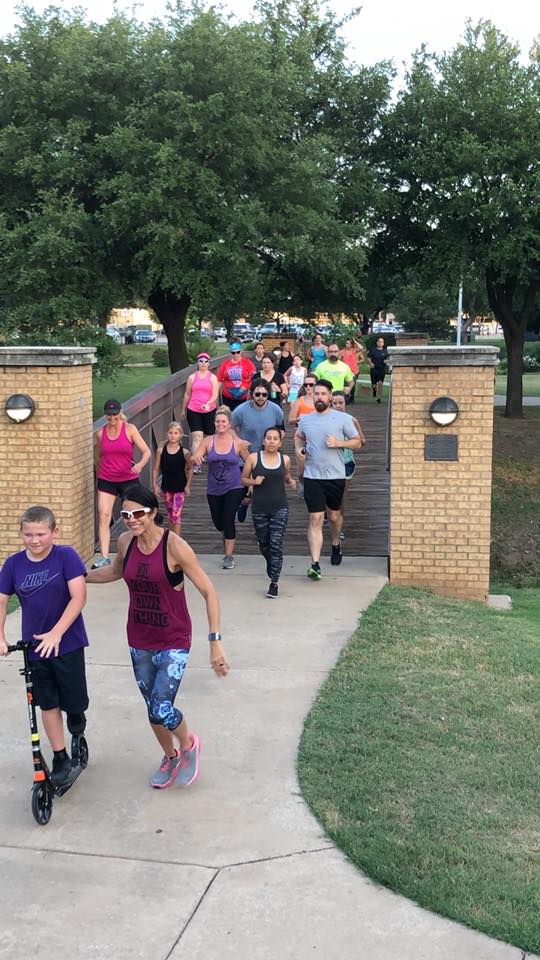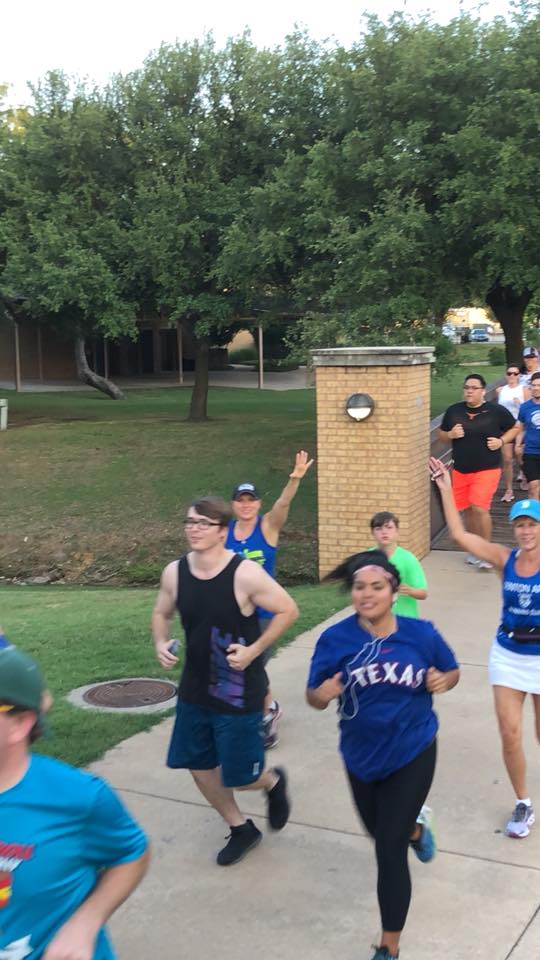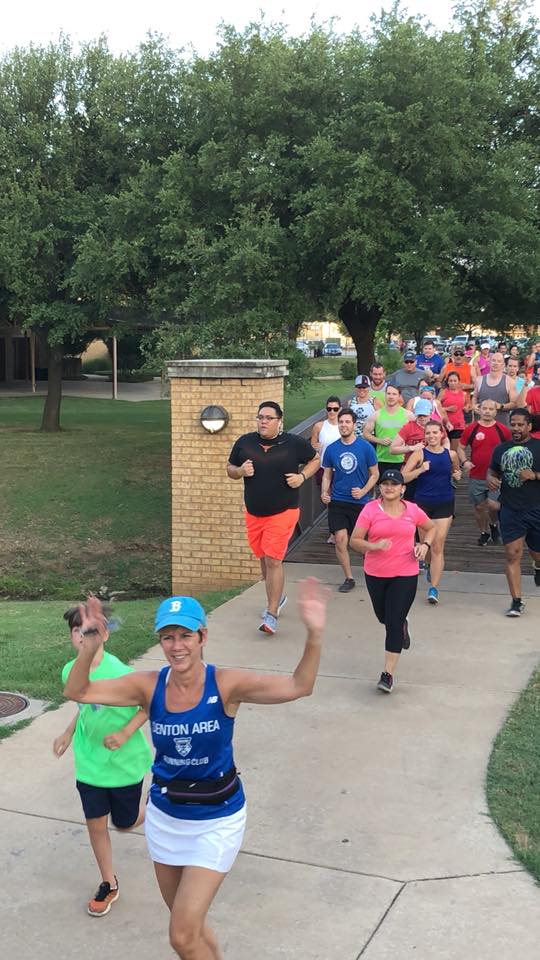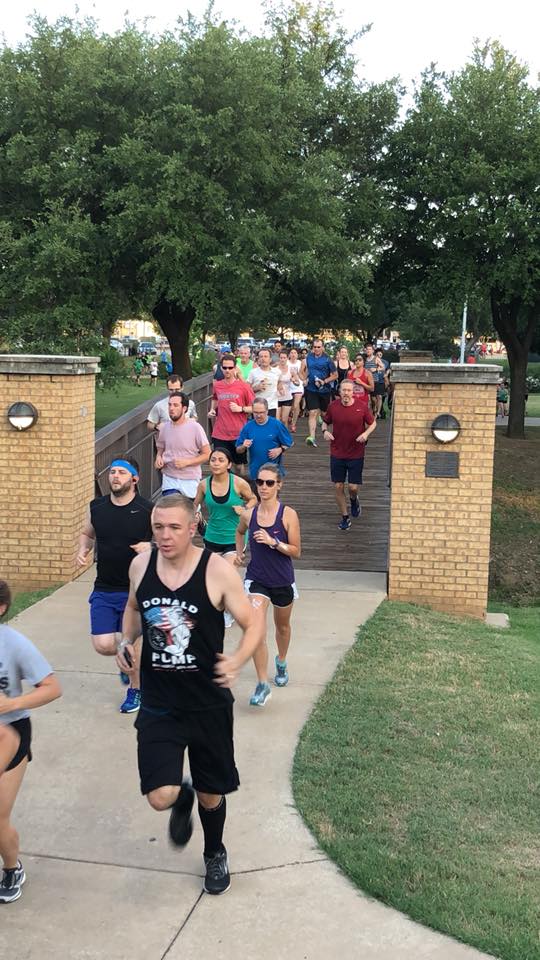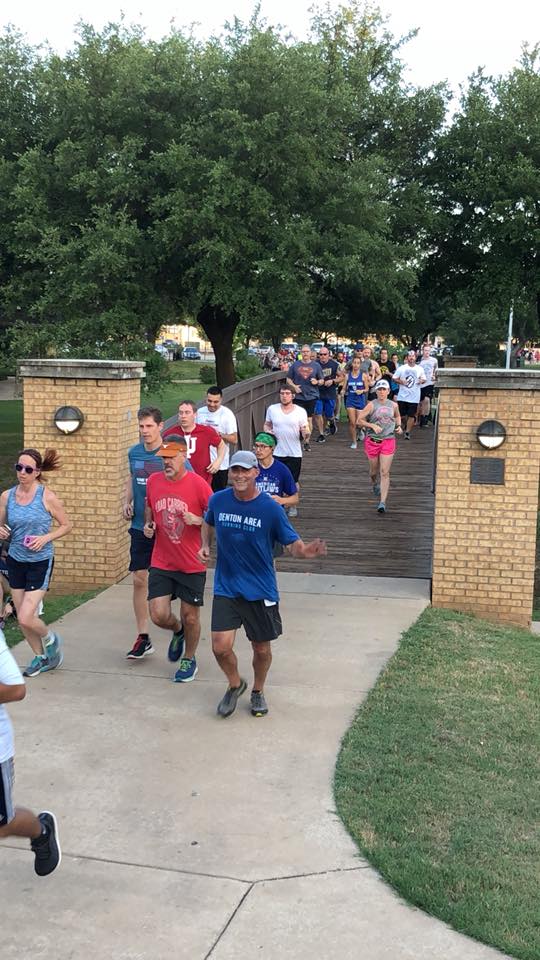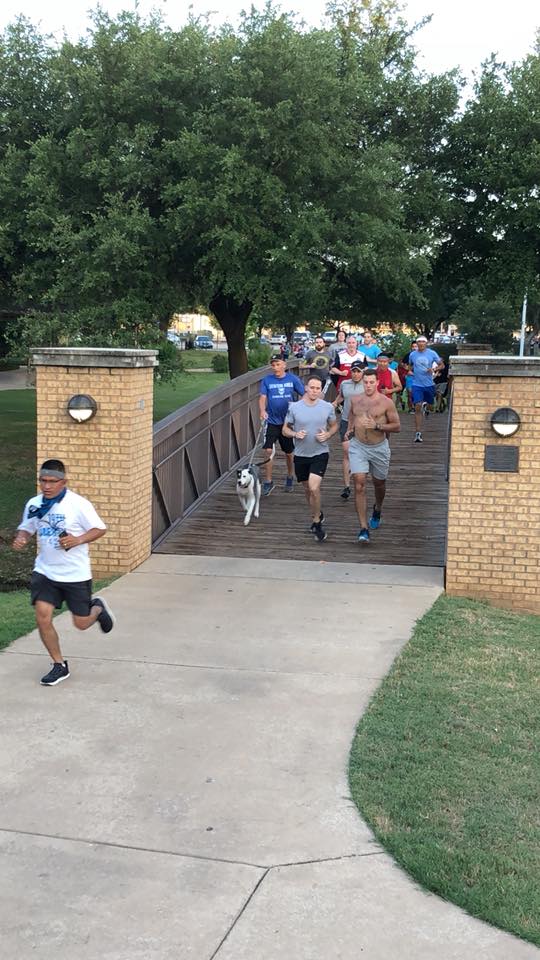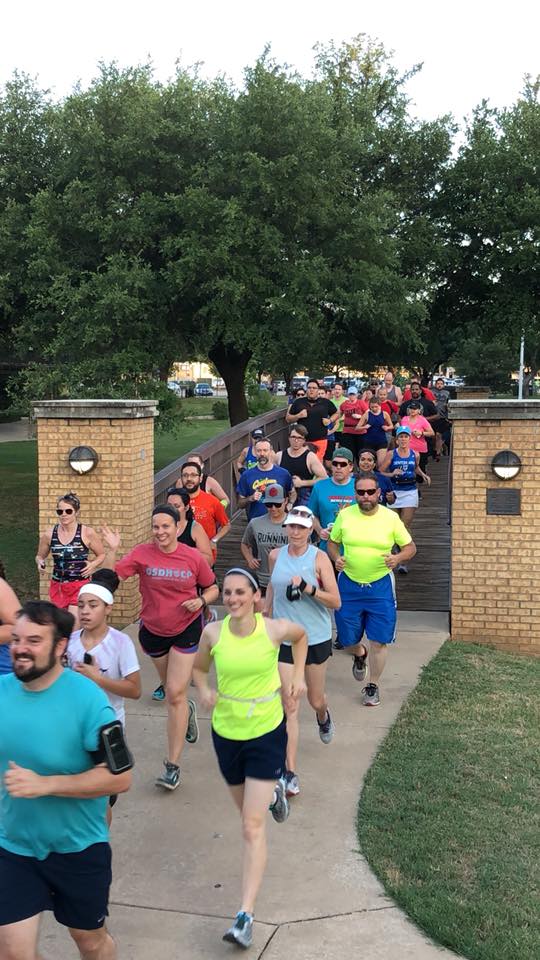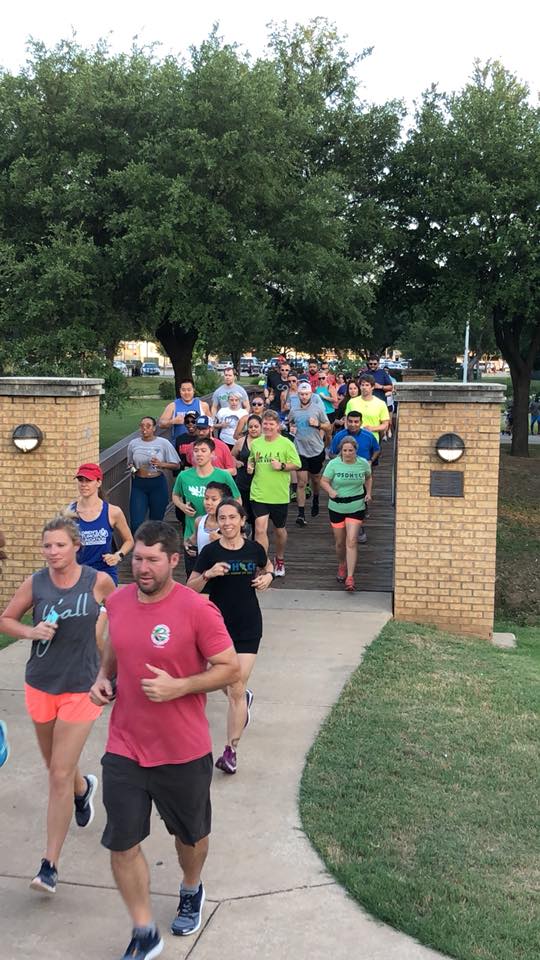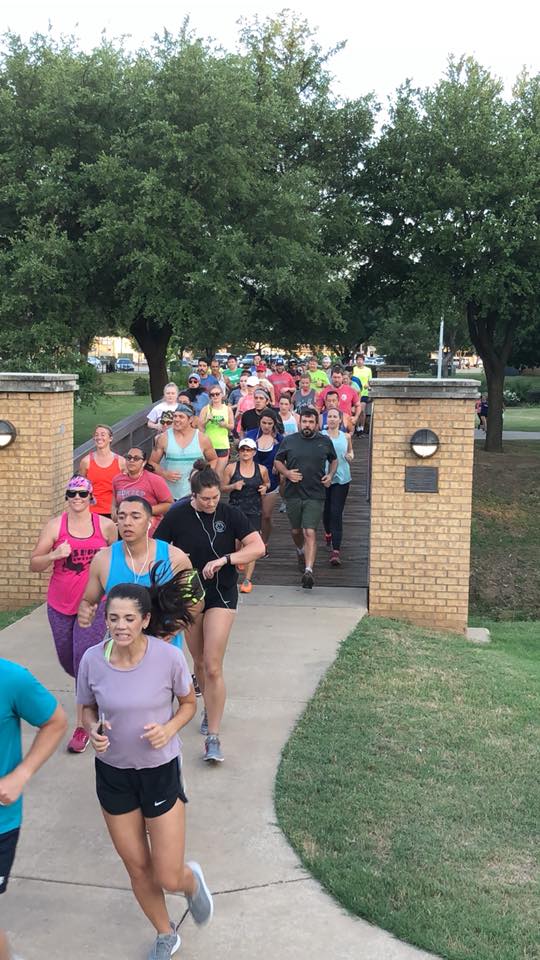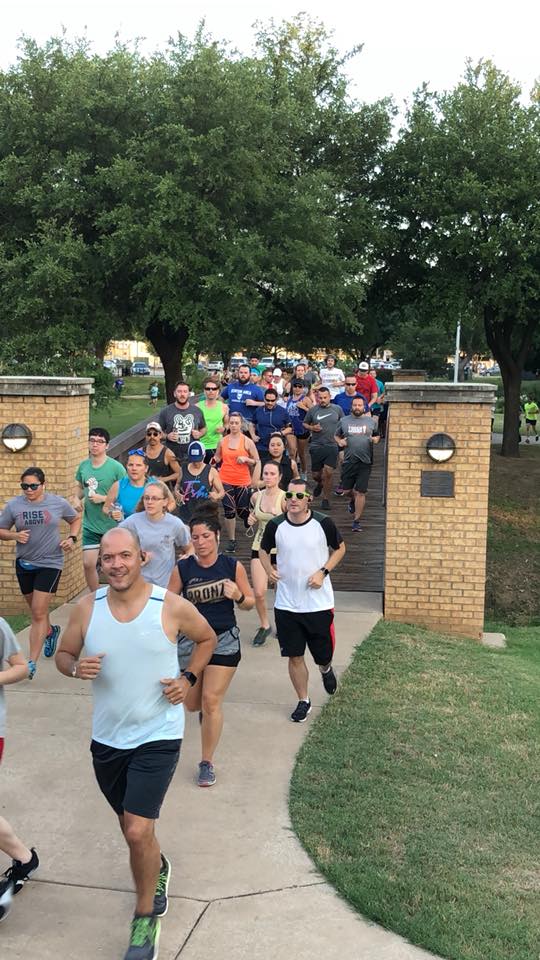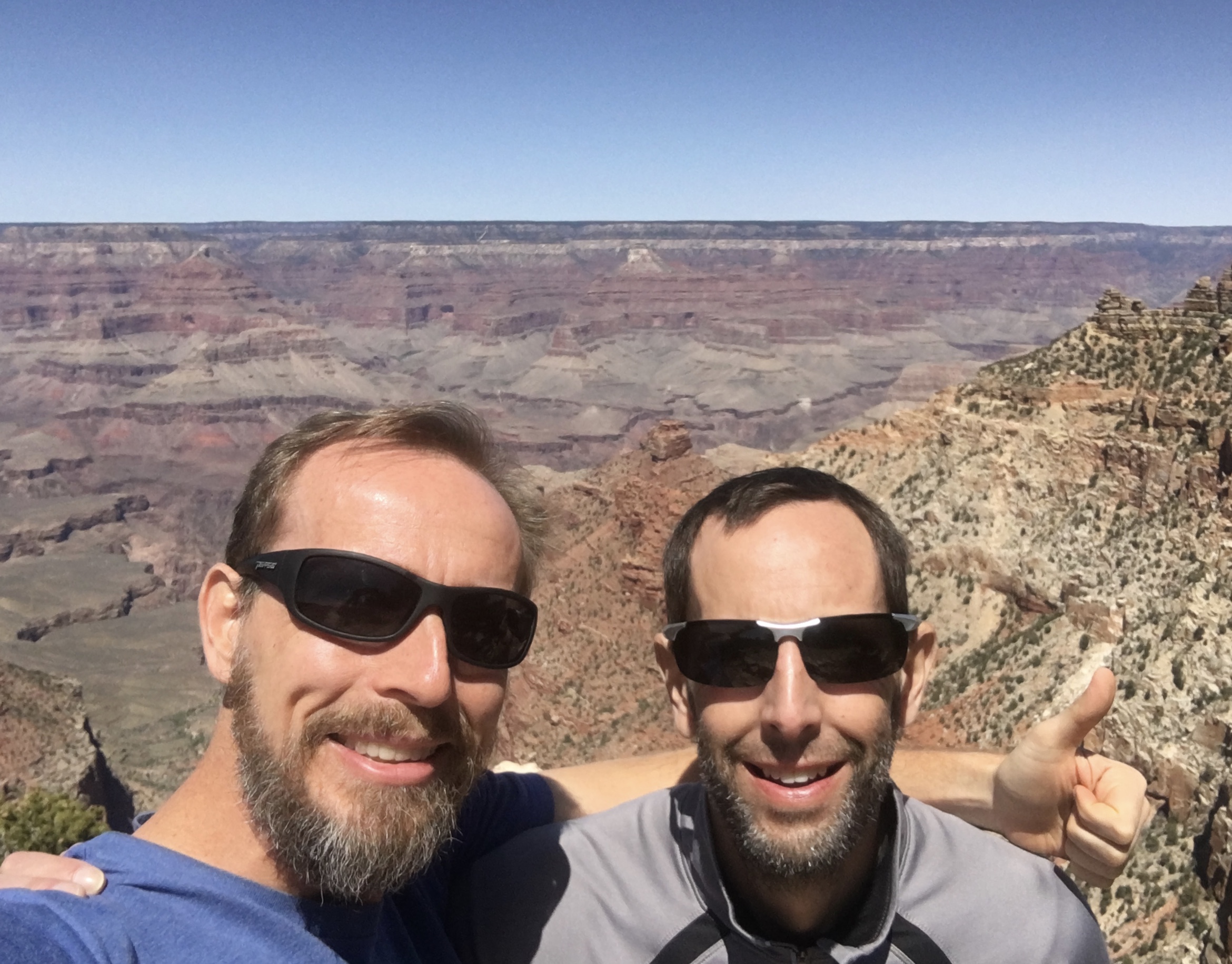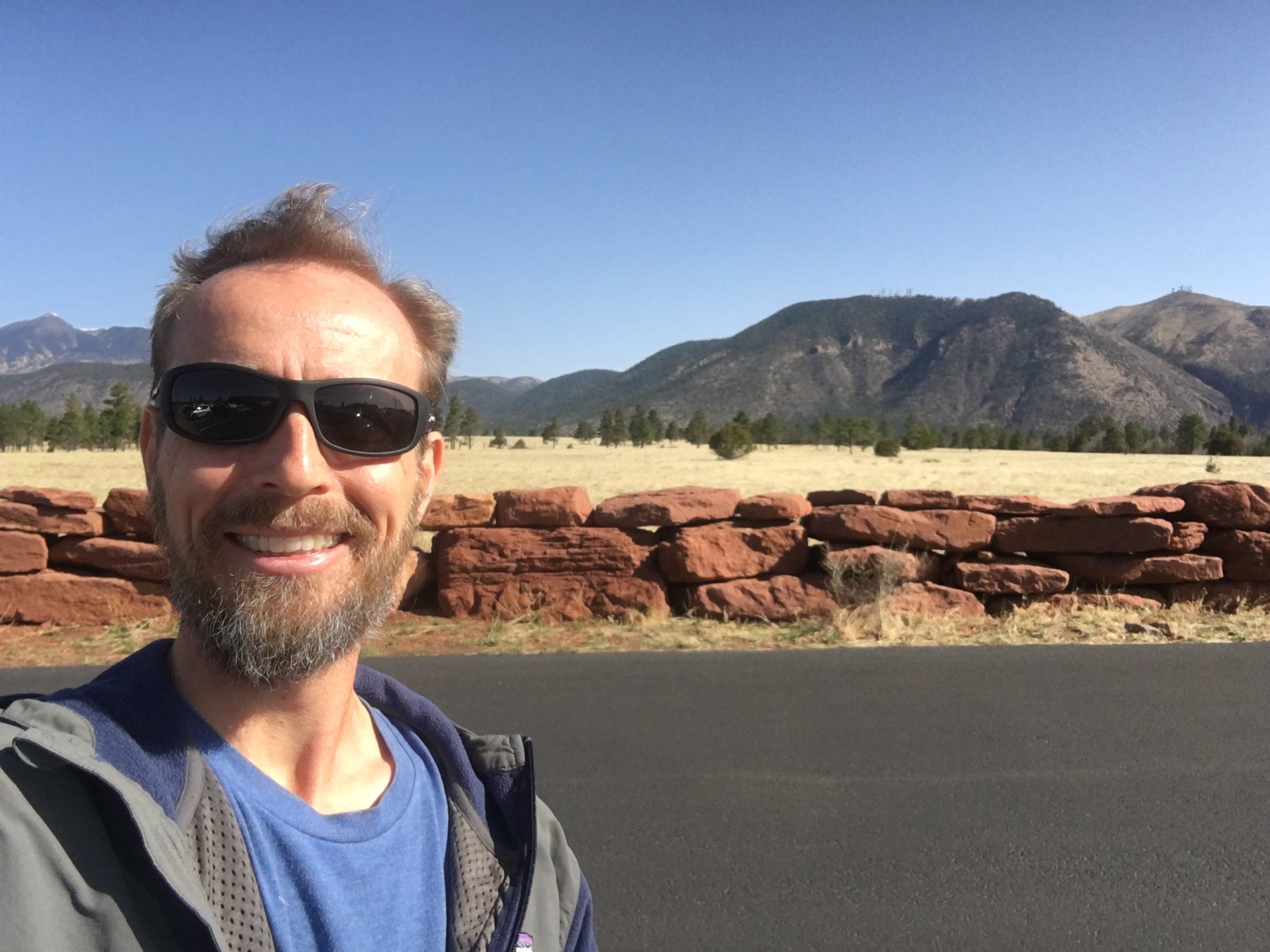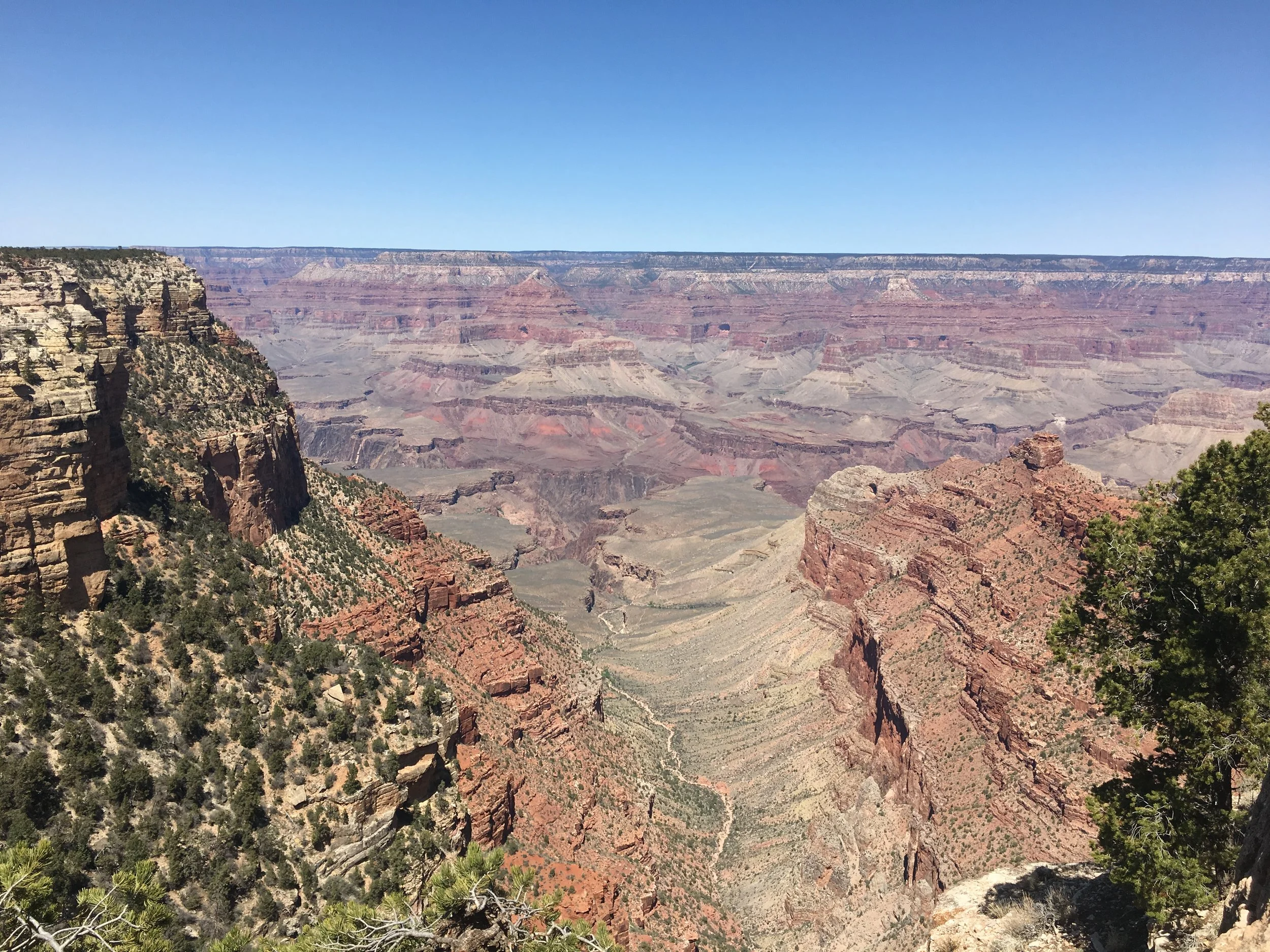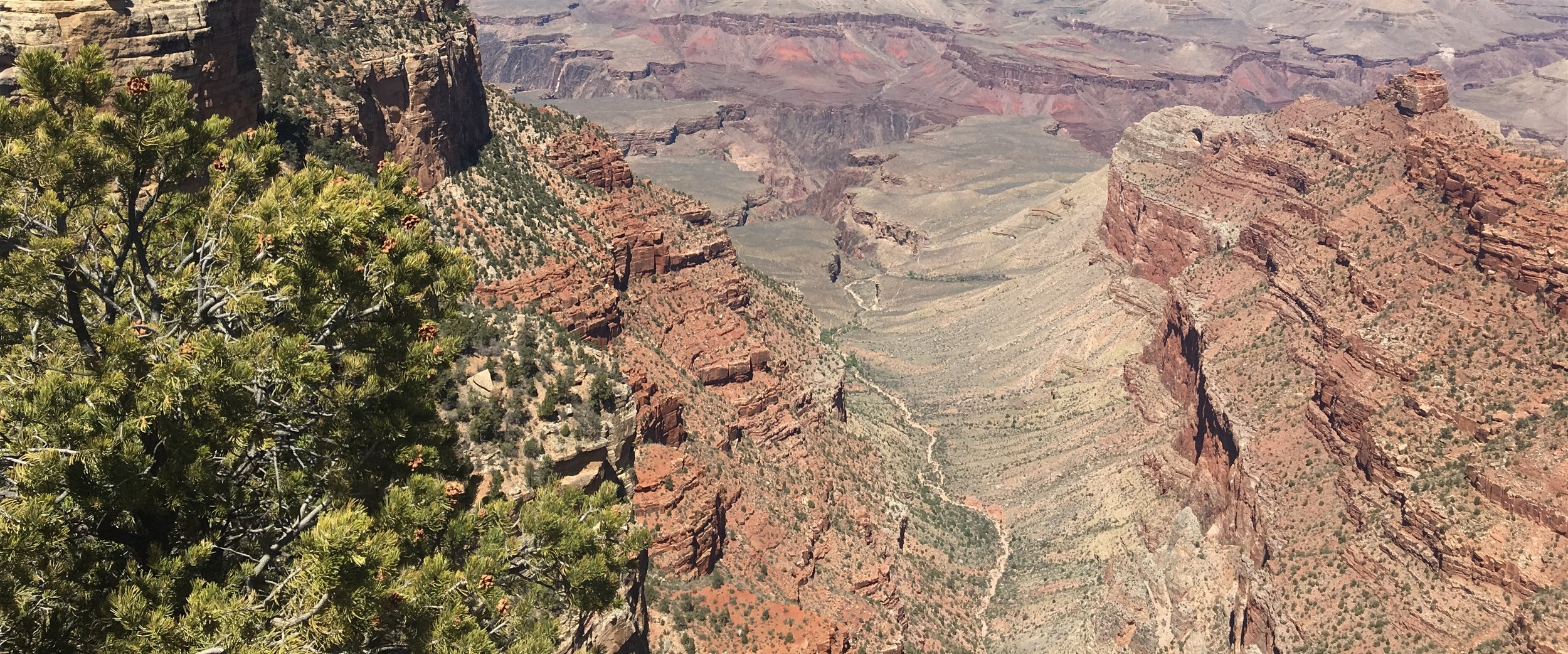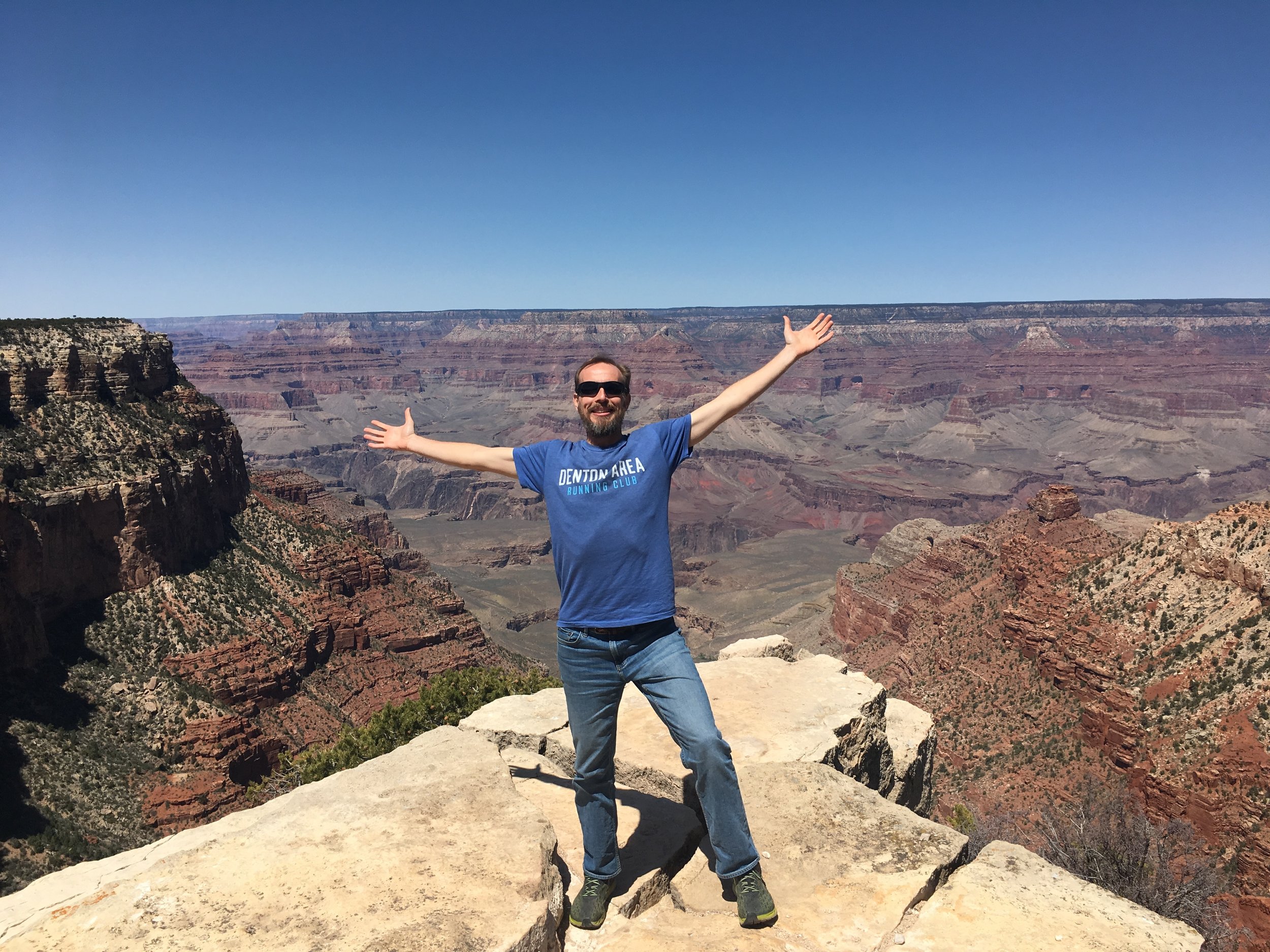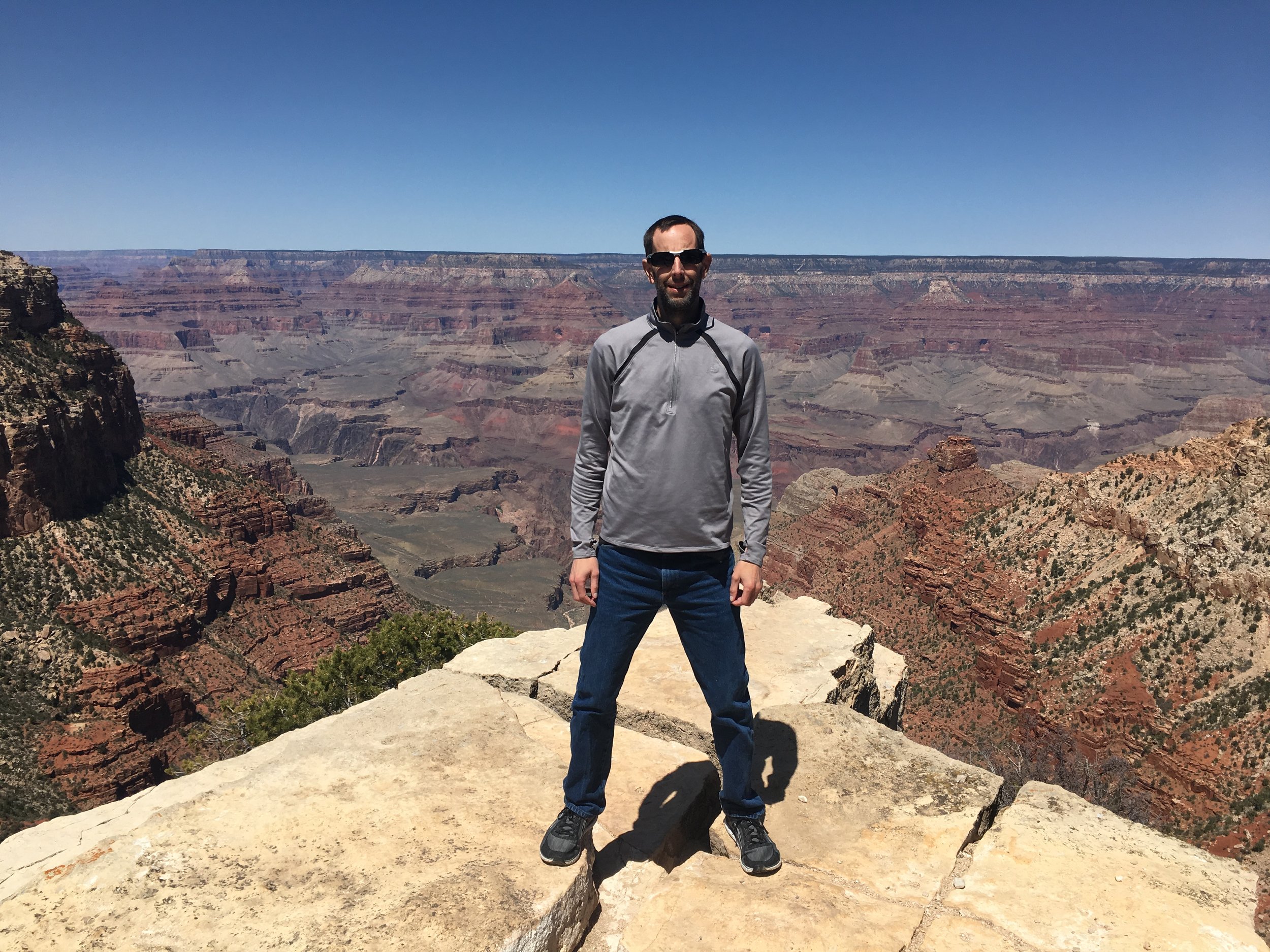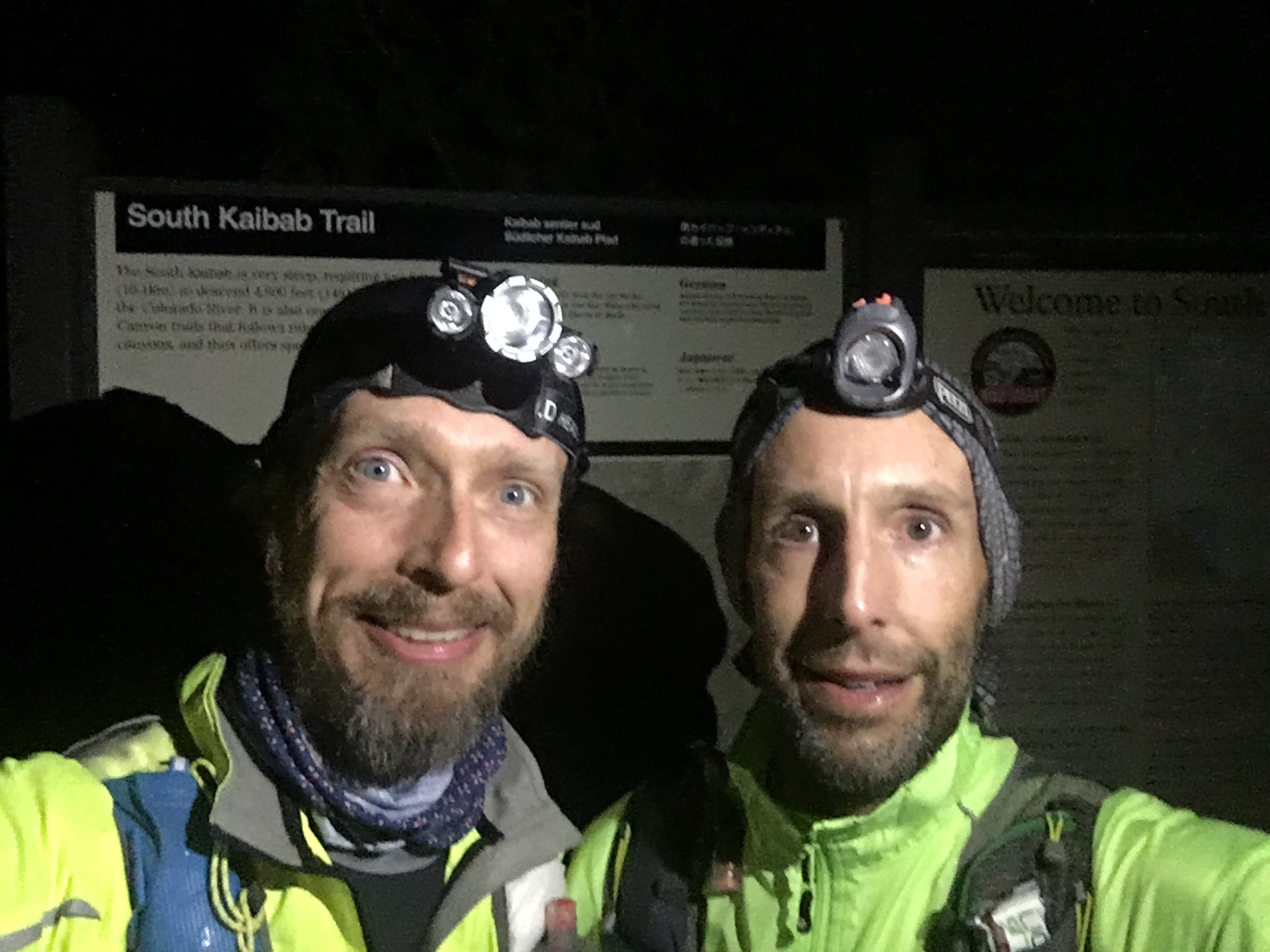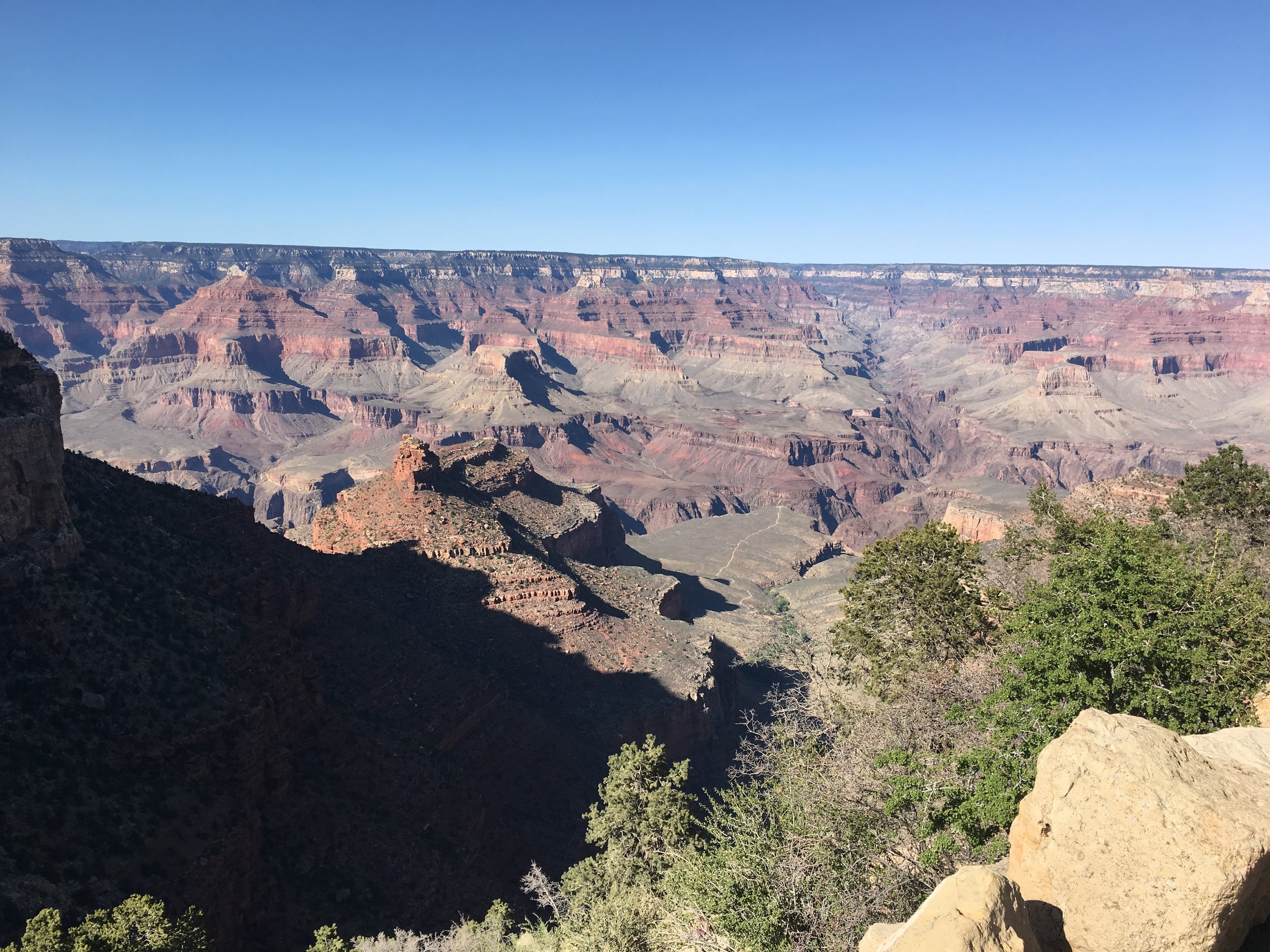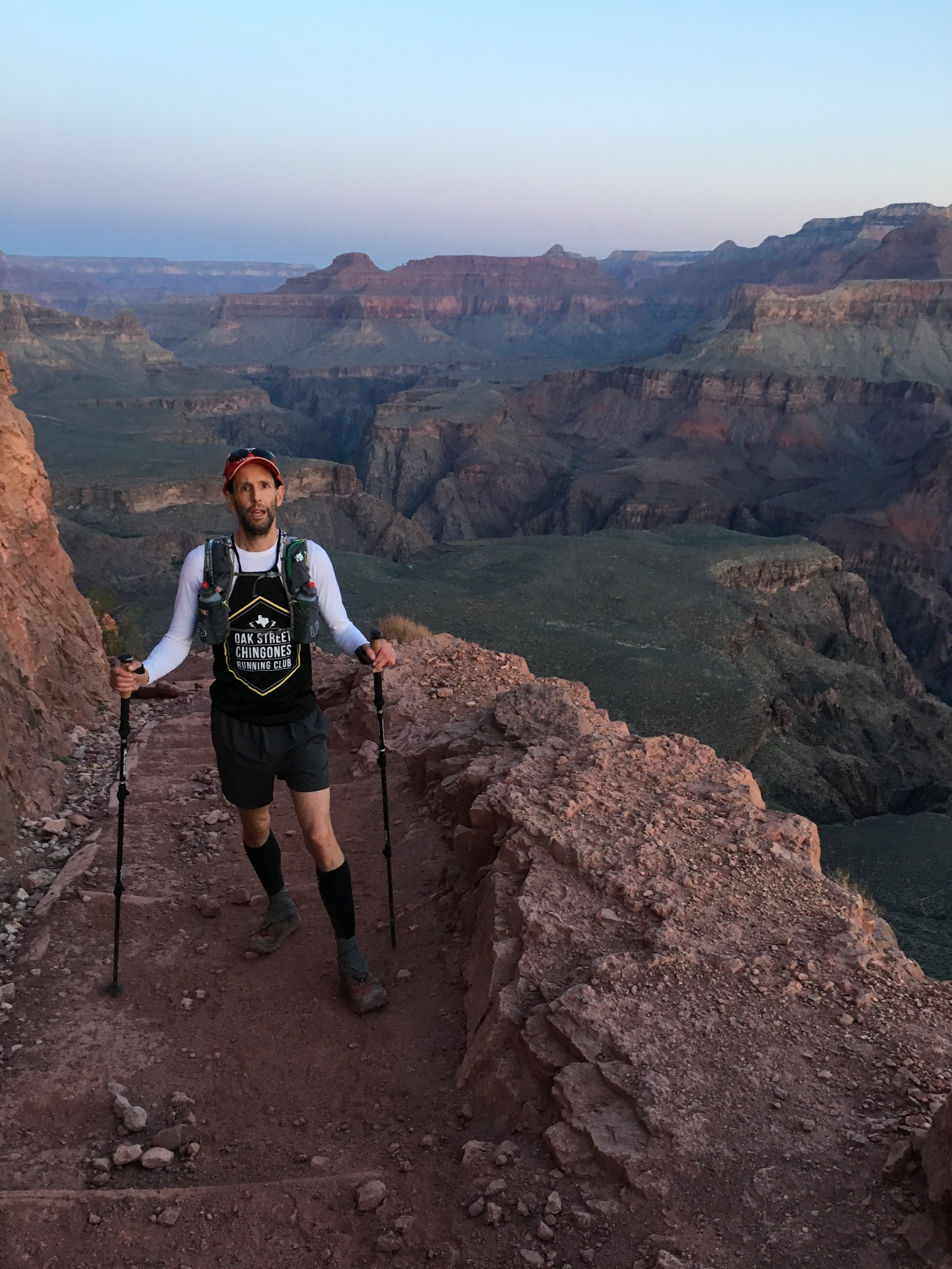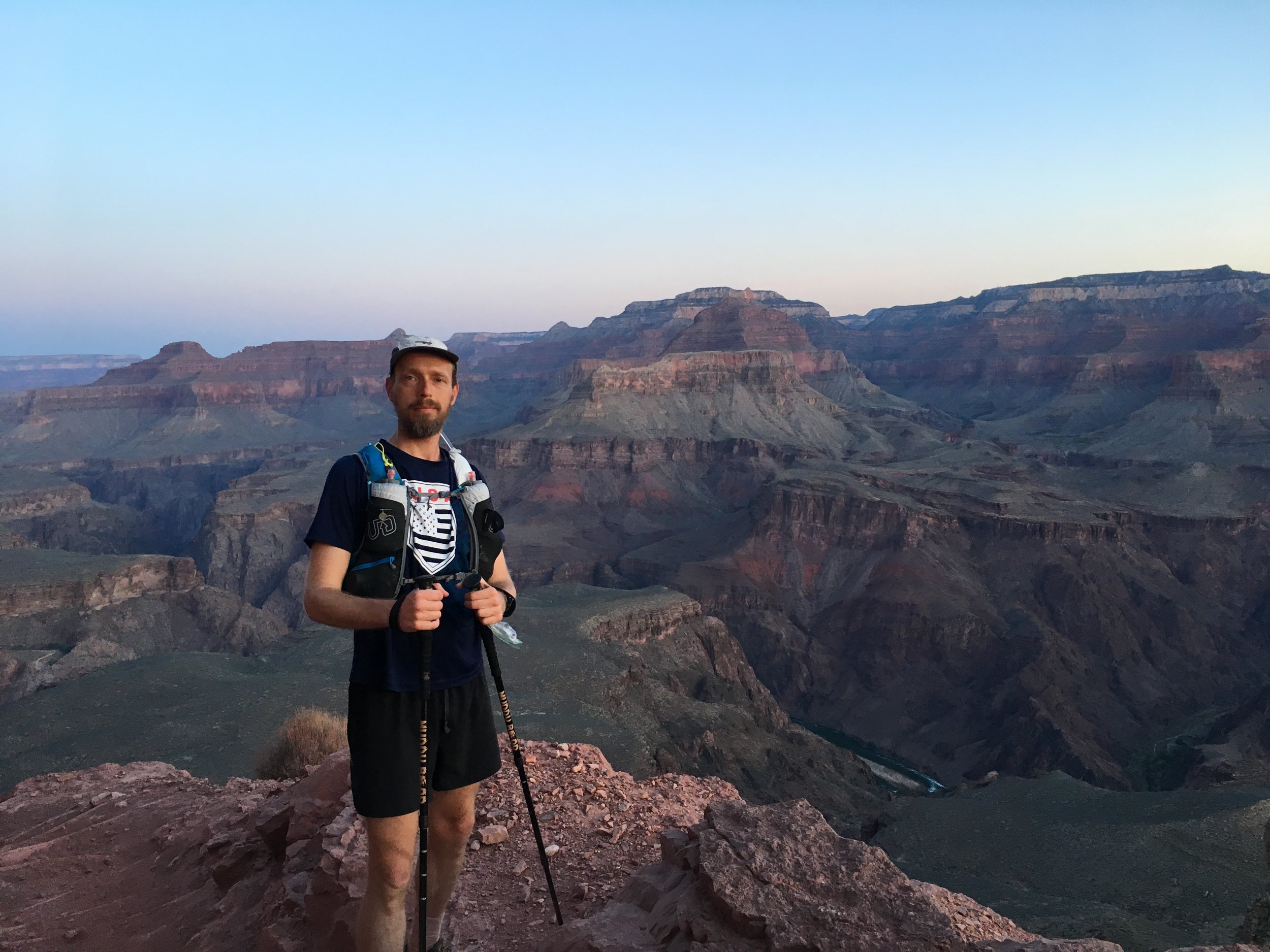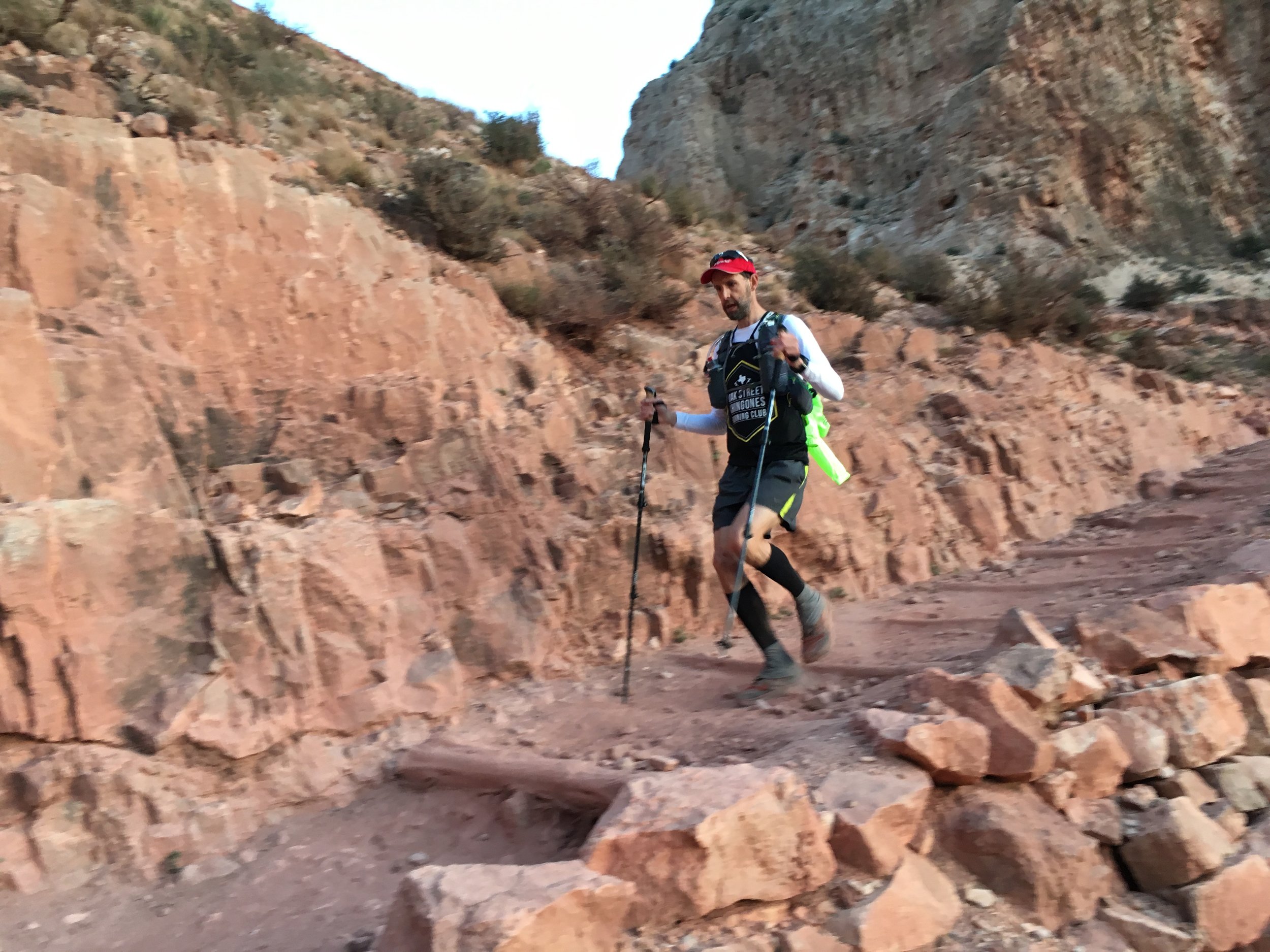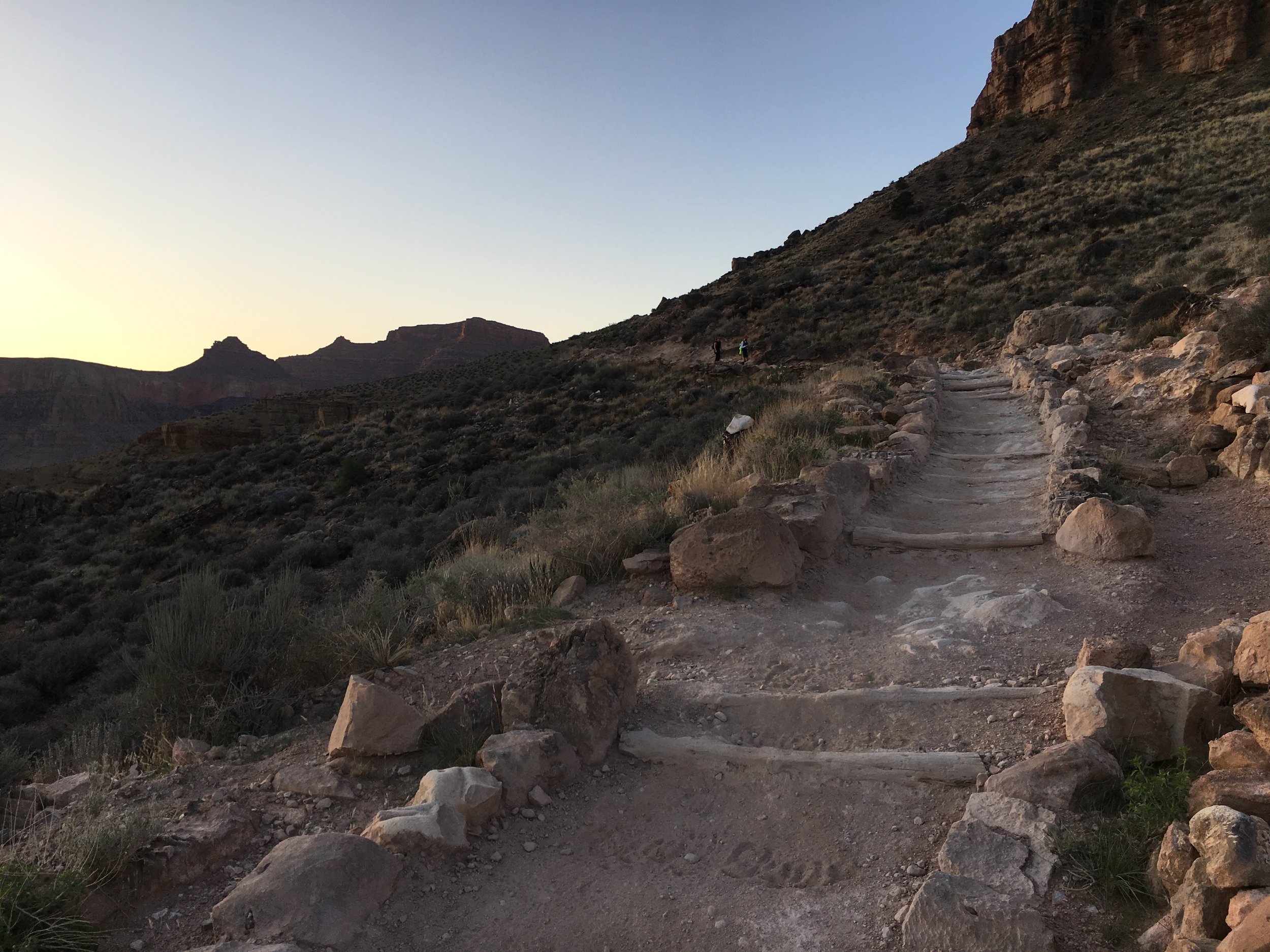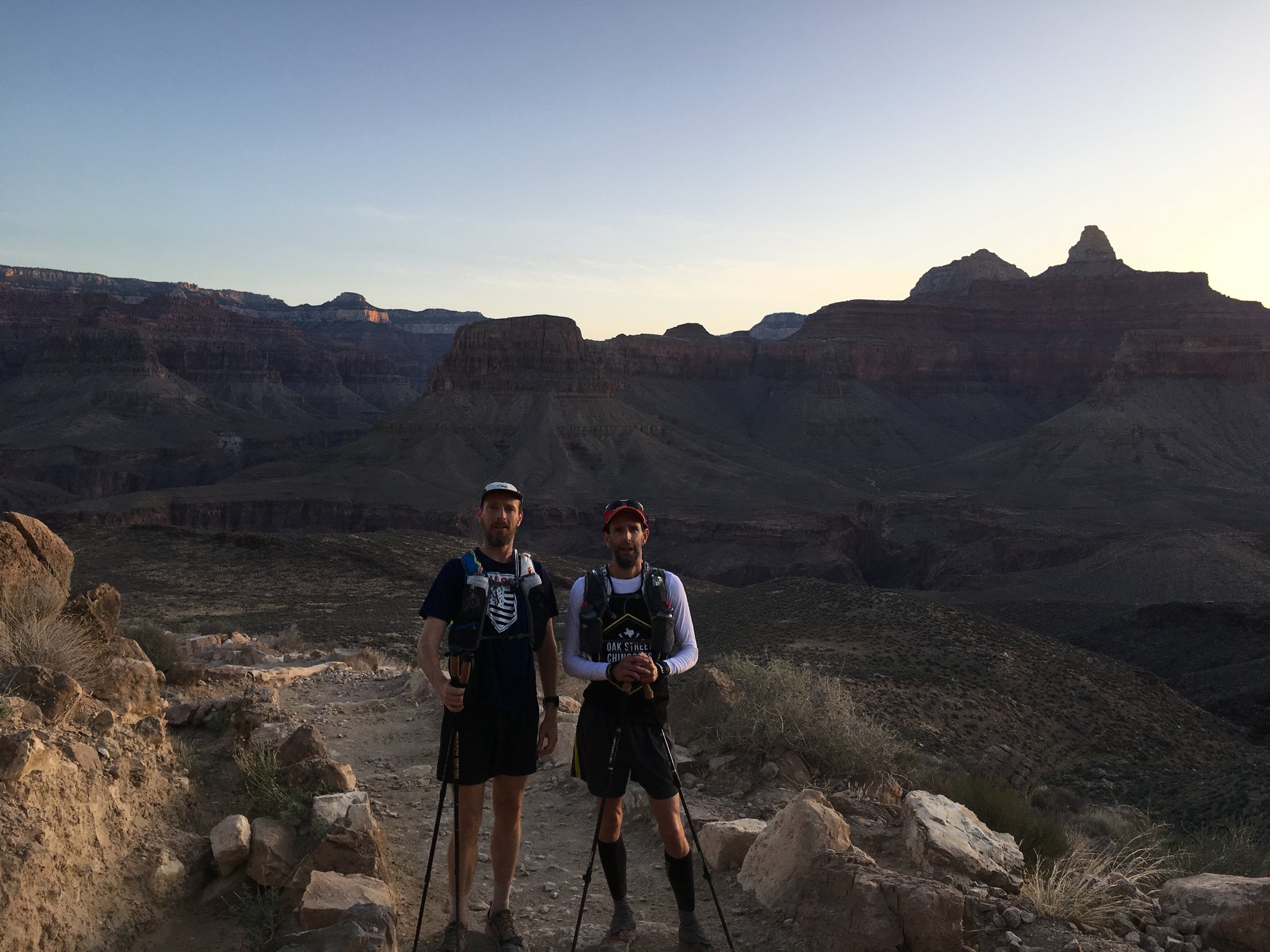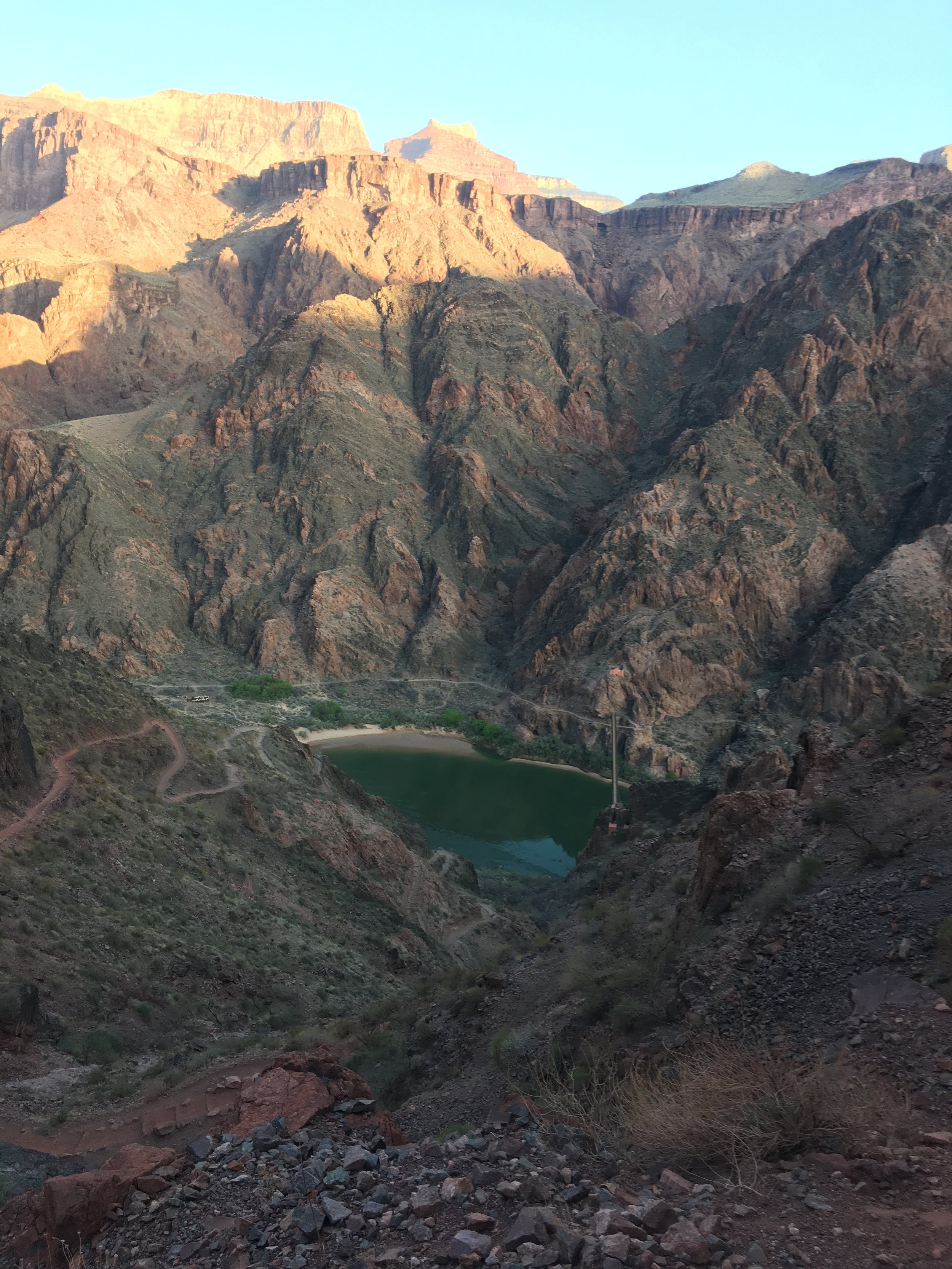Chris: So how long has this been on your bucket list?
Tim: It started with Alex.
Alex: It started with me. Last Thanksgiving I was with a big family get together and my cousin, who's done ultra distance running and a lot of Ironman's had just done it on a whim with a buddy was talking so highly about running it. He only made it half way. They started at the south and went to the north and they were ill prepared. They didn't have enough water, they were in road shoes and all those types of things. I started thinking about it over the holidays, started talking more and more and then Tim started buying into the idea of possibly doing it in January and that's when we started locking things down when we all started talking about it.
Tim: But a couple people bailed out because of family reasons and whatnot. And uh, so they ended up the two of us.
Chris: I know you guys do a lot of like big distance sort of races skill background.
Tim: We've got a couple of skins on the wall. My biggest was Bandera and you've (Alex) done a 100 miler.
Alex: Lucky 7's and came in third.
Chris: And then you were out with that broken foot?
Alex: I broke my third metatarsal in Seattle and that put me on the sideline for about 8 months.
Chris: So this is your first big thing back?
Alex: It was my first big thing. Prior to this I paced a guy named Landon at Rocky 100 for 25 miles. That's a very flat course and a slower pace, but after that I knew foot was ok.
Chris: So in terms of like logistics, how much planning did you put in?
Alex: I'd probably say maybe say over thought it in some aspects. I travel for my work so getting in and out of hotels and airports and car rentals... I had that kind of down and figured out we wanted to go in at least a day early because of weather you're going to stay two nights in case of weather. So just getting to the Grand Canyon I put a lot of thought into. And then Tim and I built a Google Doc and so we started passing things back and forth and then we started thinking about just water and fluids. And when you read up on the Grand Canyon, there's really... There's two windows to run, in the spring time and in the fall. Summer is too hot and winter is too unpredictable. And the issue of going too early in the spring is water. On the south end there's water, on the north end, you just don't know. So that's when we just started planning. We talked about packs and food and all that.
Tim: Alex is the consummate planner. You made this so easy for me. Frankly. I think the big question mark of all of us was how do you plan for something that's not like a race you know? You may or may not have water stops along the way. So that threw everything in terms of our normal planning for a race. One of the biggest lessons, a Facebook page called R2R2R Grand Canyon are hikers and runners that are posting race reports and run reports all the time. So that really helps.
Chris: You guys don't, didn't have crew. Right? So you guys were carrying all of your calories, all your first aid stuff. When you guys are planning calories because, I know you're still doing the keto, fat adapted thing. So does that mean you carry less with you or just different stuff.
Tim: Not we've run with one other guy who is not fat adapted and he is pounding carbs all the time and that works for him. For us, I, I planned out about 100-200 calories an hour with some extra just in case and frankly that was one of my mistakes, not having enough with me.
Chris: How long were you guys moving?
Tim: 15 hours 43 minutes.
Alex: That includes pictures and videos and stuff.
Chris: But the body still has that ticking need for calories to play with.
Alex: And the elevation played with you. When we run here in Dallas, it's at 800 feet elevation. [In the canyon] We're breaking 8000, very steep climbs which we're power hiking, walking. But it just messes with it.
Chris: So how much weight were you carrying just between water and calories?
Tim: I had a two liter bladder plus two flasks, two 500 ml flasks. And an extra bladder.
Alex: Correct. Plus an extra bladder filled up because on the north side we didn't know if there would be enough water. So we took an extra bladder. So with everything we must have been carrying 10 lbs plus?
Chris: Did you train with that extra weight in mind?
Alex: To a degree with did and most of the training was really around going down to Cedar Park Reserve and just hitting those hills back and forth. Tim and I did two or three good weekends where we're doing 20 miles and just pound it and we took our poles, not always running with them but at least having them on our pack to simulate what it might be like.
Chris: What would your elevation gain on one of those training runs be?
Tim: Alex kept some good data on that but you just can't replicate the rest. I think it was 7000'-8000' in one run. I liked it actually. You did a long run on Saturday, usually CRP some elevation and we followed it up on Sunday with a 10-15 miler at somewhere like IDB, try to get about 30, 40 miles. Worked out pretty well for me.
Chris: This is one of those things in the Texas area where, especially in the summer it's so hot. Like this colder weather we have almost, I would say lucked out, except I'm tired of running in the cold. Like even today I was out with gloves on. But in the summer when you're trying to put something big miles together, doing like an early doing like 20 on Saturday, 10, 15 on Sunday, maybe even adding like a Friday night before.
Alex: I've done that in the past and it worked real well. Your body's fatigued and mentally you're fatigued after a long week. It's just learning to kind of push through the discomforts.
Chris: They always say that it's a mental thing to overcome but if you don't have the physical piece there or at least mostly there. The mental thing isn't necessarily going to push you through like your body completely breaking down.
Alex: One of the takeaways for me, after going through this run with Tim, was pretty close on our experience in running and in skill sets and you've got to treat it like an ultra, it was a true ultra, but you go through these highs and lows and when one person is going low and the other person's feeling pretty good they can pull you along. We had a lot of that symbiotic relationship over our hours together where he was stronger than I was or I was stronger than he was and we just kept motoring forward.
Chris: I know you guys have both used the Maffetone method in the past. I was wondering, is that still a big part of your training?
Alex: I'd say 95 to hundred percent.
Tim: We try. It's hard maintaining that, especially when elevation is a factor. It is definitely a foundation of our training and we try to maintain it during the runs as best we can. The concept is whether you're moving or sitting, you're always burning fats and sugars.
Alex: The idea with Maffetone is you want to try to optimize your fat burning. It's common American diet now has simple process carbs which your body will take the path of least resistance means more likely to burn more carbohydrates. So the idea of Maffetone is, he's got a simple formula. Take 180 less your age, so if you're 40 years old, 180 minus 40, so 140 would be your threshold where are you going to start burning more carbs than fat. You want to be under that 140 range so, somewhere in the one thirties, and when you begin this process, it's difficult not to break the 140 barrier. Over time you'll get more fat adapted. You can also change things up from your diet, eating more fats, less processed foods, less carbohydrates and that will accelerate it. Near the end, what you end up doing, you can burn more fats than sugars. You hear about marathoners hitting a wall at mile 21-22 because they are burning so much sugar. They run out of sugar after three or four hours and they crash. So in this case, you have more fuel built into your body. And there's runners like Zack Bitters, you know, listen to some of his podcasts. He's able to do phenomenal things. Once you get good at it and you just kind of trickle into sugars, which is what Time was saying earlier about some miscalculation on calories was that the elevation and steepness got us burning more sugars than we really wanted to. But that was just the nature of the course. We took a kind of like a race that we want to keep pushing forward.
Chris: So what, what kind of nutrition were you carrying?
Tim: As far as calories we each have something different. Something that we trained with and kind of fits our gut, basically. For me, I use Tailwind, I use it it in different proportions in my training. I also started carrying some natural foods. That's what I'm leaning towards; avocado prepared and cut it in half and put them in baggies. Dates, some oranges, and some almond butter.
Alex: I had some UCAN bars, Spring Nutrition gels, a gel pack that's natural fruits and veggies. UCAN is a superstarch designed for kids with diabetes. And they realize that since it's got such a low sugar profile a lot of athletes use it. 22 days make a vegan or vegetarian, non-GMO protein bar. So there's three mainstays for food, for physical food, and then I had water, I did a lot of water I did some Tailwind and then salt tabs.
Tim: When you say leaning towards water... This is one of the interesting things that we calculated afterwards. I consumed at least 2.5 gallons over the 15 plus hours and Alex at least 3. And that wasn't enough.
Alex: [Laughing} We didn't pack of scale but in the future maybe we pack a scale because it was much harder the next day. We were dragging just from dehydration and we did check the weather on weather bug. The day before we ran it was five percent humidity.
Chris: Five percent? Five percent sucking all the moisture out of you. Coming from somewhere like this with the high humidity... I mean anytime you're running at that elevation or in a different climate.
Tim: It's like you are running and you don't feel the sweat on your skin. I only felt it because of my pack.
Chris: Did you find that you were chilled faster because of how fast the sweat was evaporating?
Alex: No...no. Speaking of body temperature, though. When we woke up the morning of the run, it was 29 degrees. That's pretty chilly to go for a run, but at such low humidity we were overdressed.
Tim: And in the Canyon, it seemed to get warm quickly there, there wasn't much to speak over the 15, 20 minutes into the and realize can shed some layers.
Chris: What time did you start in the morning?
Tim: Well you've got to get up early, obviously. Our plan was to be at the trailhead by 5:00 am so we were up at 3:45 am and we got a taxi.
Chris: Did you guys have a pace in mind?
Tim: I was looking at the map because from the rim, South Kaibab, down to the river is the first stage. Six miles, six miles downhill. Nine, 10 minute pace. No problem. That would be great. We're going to do it without an hour. It took us two hours out because it was so steep, so technical, and there were too many pictures to take. There was a hiker behind us, I think her name was Katie, she kept catching up with us. We kept leap frogging with each other, gawking at the sunrise over the North Rim.
Alex: Regarding pace, Jim Walmsley set the record last year, so we had simple math, double Jim's time.
Tim: That would be in the ballpark, and we were slower than even double his pace because he was ridiculous. He did it in like six hours and change.
Alex: And when you think about how steep this is, not just the steepness, but they've carved in either logs or a vertical stone too to help against corrosion and they're atypical in their spacing and then you get the mules going down and they'd rather have a soft surface, so they're stepping and creating additional ruts. It's a technical run.
Chris: You guys made it down in two hours to the river and then you're headed...
Tim: That begins the second stage, which is relatively flat, slight incline leading up to the north side. That's about nine miles to a rest stop in the ranger station called Manzanita was unoccupied at the time, but there was water. From there is the hardest to file up. Five mile climb straight up. 10, 15 or 17 percent grades I think at times at elevation. That's where I started flagging Alex pulled me along.
Chris: How long did that take you to go through that five mile section?
Tim: A couple of our miles, because we kept stopping and looking... our last couple of miles, I think we're 30-35 minute miles.
Alex: With poles and just kind of pushing each other along.
Chris: So then you got there and then you turn and head back to the other side?
Alex: At the top of the northbound there was running water, which we were told her wasn't.
Tim: I think it was just opened up that day.
Alex: So we got water. We bumped into some people, chatted with them, put on sunblock, had a little food, took some pictures and then started going down.
Tim: There was snow up there, so temperature wise we're still in the very comfortable range, probably 50, 55 F. And then you take the same trail back down to the river where we split off.
Alex: One of the are deceiving things...so the sun starts setting and we're starting to look for lights around Grand Canyon village. There's a bunch of hotels and motels and beacons, but the face wall was so steep. Until we came across the finish line, if you will, we didn't see any lights.
Chris: That's a little disconcerting. Where's the end?
Tim: That is the psychological game at the end, your watch doesn't match up necessarily with what the trail markers are telling you. You don't know exactly how far you have to go. Just telling yourself to keep going, putting one foot in front of the other.
Alex: There are two big clues that we're getting close. There's these little caves on bright angel. The second one getting closer to the top, maybe a third of a mile when we a home and that was right around the corner for the quarter mile, so we knew we were close, but again you couldn't see any lights and we were fatigued and watches were off from what the trail was saying and then all of a sudden we saw the light. There's a, there's a really neat little art shop that talks a lot about their history. That kinda overhangs and we see this little light in this, this couple and this guy's talking and all of a sudden we're done. Yeah, they're
Tim: And we almost forgot to take a picture by the sign.
Chris: Did you guys see any other people out that day that we're doing the same thing?
Speaker 1: So um, so a couple of runners, I guess not many, maybe four or five not many since we went down on a Monday and there wasn't much traffic road. There were some runners, I think, that did it that day. They posted on that Facebook page I mentioned. I think they were really fast times and a couple of others, some girls that we saw some that were just really impressive athletes. The second one we saw was something like 17 hours or so, slower than what I expected since when we saw her she was moving so well.
Alex: There were some hardcore hikers with mountain bikes on their backs. So you can't ride mountain bikes down there, but they're going off to some trails to ride so they're hiking down with with mountain bikes on the back and their food and the water. To camp, you have to get a permit and you have to use a lottery system to get in there, but down at the bottom of the river is there's a lot of neat little hiking and camping and people spending time down there and I'll tell you that everyone we met, we met some younger folks and older folks, was so open, easy going and friendly, sharing of information.
Chris: How important do you think it was that since you were thinking about this for so long, having somebody that you've trained with, both of you have been on so many training miles together, with you on that adventure?
Alex: I wouldn't do it alone even a second time. There's parts in the north section. Where the running space might be 8 to 10 feet wide and then there's a thousand foot drop off. This is hardcore and you need someone you can rely on or they can rely on.
Tim: It's funny you mention that because I feel the same way much better than with someone. Not just for the company but from a safety perspective. But everybody else we met that day, except for those two hikers, they were all solo runners. That's the chance you take. It's hard enough finding someone who goes about the same pace. I think it worked out really well with, Alex said before, we help each other. So when I was flagging he would pull me along and vice versa.
Chris: So you guys have future adventures?
Tim: In July, Colorado. The Ouray 50.
Chris: Ouray, alright! And that's at like 10,000 feet average?
Alex: Its 9,000 something. It's billed as one of the toughest 50 milers in the world. 44,000' of elevation change. And their cutoff is 24 hours for 50 miles.
Chris: That's not a whole lot of time. Especially if it is that hard? Have you been up to that elevation?
Alex: Back to the Grand Canyon, it was a training run!
Chris: So you know you can climb but then you add in that elevation. Have you run at elevation before? Those are some massive mountains. I mean there's fourteeners in that range, I don't know about it on that course.
Tim: I think it gets up to 12,000' or 13,000' but there's a documentary on Amazon, the Ouray 100.
Chris: Yeah. So I met that guy, Avery Collins. I met him last summer. We went up to Steamboat Springs and he was working in the running store, he just introduced himself and he was like, "Oh hey, what's up?" And then he took like sixth that year at Western States a couple months later.
Tim: And he took a 10 mile wrong turn and still won [the Ouray 100].
Chris: I guess that shows just how much training in that environment can affect your ability. Have you guys thought about any sort of mask or tent or...
Alex: I just picked her up an elevation mask and then I've been, you know, it's been almost two weeks since we came back from the Grand Canyon. So this week coming up, I'm gonna start my back up...upper leg strength. I'm a pretty good power hiker so strengthen that, but just quads. We'd just finished up going down to north of North Kaibab and there were times when I had to slow Tim down because my quads were just twitching, they were so sore.
Tim: It's funny. We have different strengths and weaknesses become that complimentary, he was so much better going uphill and he would drag me up, I was stonger on the downhill. It's also the mental game. The Grand Canyon is no joke with 8000' and change. The average elevation for Ouray is going to be 9000'.
Chris: So what would you say was the highest and lowest point of the run, physically and mentally?
Alex: Mentally I don't know, I mean with Tim dragging me along. But you've just gotta train. These ultras will find your weak spots. We've had kind of a cold, wet winter and we didn't do as many long runs and I was coming off a broken foot too. The pictures you see and the videos do not do this place justice. It is so powerful emotionally and spiritually that you just look and you just get energy just looking around and then you've got a good running buddy that's pulling you along. We were in good spirits.
Tim: This was not as mentally tough as Bandera for me. This is completely different from the race in that you are carrying everything that you need. Number two: Every five minutes you're turning a corner and you're just stunned by the view. It's interesting. One of the reasons we had a slow time, 15 hours and 43 minutes, I'd say at least an hour just to take pictures and a couple of long breaks. We just took our time.
Chris: It's a smart way to approach something like that for the first time. Especially if you haven't been out in that terrain and elevation.
Alex: And the beauty of it just to go see. One of the wonders of the world. It's so powerful.
Tim: It is becoming more and more popular, you know, in terms of permits for camping and hiking that we had been talking about before. The advantage is that you don't need it to run.
Chris: Can you give me the rundown about your running background?
Alex: About four years ago I started getting pretty serious in triathlons. Prior to that I worked a lot, and traveled a lot and I did it as a way to manage stress. And I started getting into doing a little bit of triathlon short distances and longer. And I have a friend of mine that lives out in North Carolina who runs mostly barefoot and he was helping me with my form, I was a pretty bad heel striker. And then I started getting into some training consistently. Not necessarily training very hard but just consistently building my heart rate up and started watching my diet and then I did a full length triathlon, 140.6 miles and then started doing a little bit more trail running. And I remember somebody was talking about running a hundred miles and again, you can't put your head around that kind of concept. But, to me, it's very therapeutic. Uh, unlike a lot of the road running and doing triathlon, there's a competitive spirit in trail running, but it's a level of encouragement. Not of competition against you. It's just you and the trail and the day. I've found that as I get older it's much more what's important to me and then just connecting up with good running folks that have similar values going out. If we talk, if we don't talk, about struggles or work or life, whatever. It's very cathartic and I come back, I shower up and I'm a better husband and a family person.
Tim: I lived abroad for a long time before and it was too difficult to exercise. So when I finally came back in 2012, I was just. I come from Beijing so I was just enamored by the blue skies. Like I gotta get outside. Literally blow your nose in Beijing it comes out black. So when I got back I was just wanting to be outside so I did some triathlons and a marathon and when I came to Texas I just fell into trail running and it's a different vibe. Run slower, a different type of person.
Chris: And so just in the past four, five years, both like really picked up heavy, heavy mileage and big projects.
Tim: If you told me three, four, five years ago, Hey, to eventually you're going to be running 100K races and in the Grand Canyon...
Chris: So is there anything else other than the Ouray 50 that you want to tick off your list in the next couple of years?
Alex: I'm trying to bend Tim's arm to go to Javelina Jundred in October yeah, it is a Western States qualifier. I think it has half the elevation we just ran in the Grand Canyon.
Chris: And then Western States is...
Alex: That would be wonderful, but you know, it's statistically, it's very difficult to get in. I'm not going to win a race. It'd be just by chance, lottery. And then I've got another um, high school friend that's trying to get me to try to qualify for Boston. That would probably be a bucket list.
Chris: That would be a big shift too.
Alex: I'm just wondering. I haven't done fast, far road running, but putting down a 50 mile run at elevation has got to get my core, my heart rate was just fine tuning.
Tim: There's so many unknowns. But I think that's what attracts us to it because we're already up for the challenge and on the push ourselves. There's no medal for the R2R2R but we've got the stickers on our cars.
Chris: You think it would give that a shot again or is that a once in a lifetime thing?
Alex: I'd go back again, I would take someone else who wants to do it. Um, and even, you know, as a family, a mule ride down into the canyon and go camping there. It's a beautiful place that people should go experience.
Tim: I'd love to go and again and try a different trail because there are so many placed to run. I'd like to run a 100 miler but I've got an imbalance in my body, in my hips turns into tendinitis and I was actually worried in the middle of the run. In the beginning of the run, mile 13, 14, they just started flaring up. I wasn't sure I was going to be able to run the rest of the distance. One of the fantastic, brilliant pieces of planning that Alex did was having some tape and that happened to be in my pack. I pulled it out at the North Rim and wrapped it around my knee and it helped managed the pain. So I need to fix that for a 100 miler physically. Things like that.
Chris: So I guess one thing that people don't often talk about is how much having someone, like a physical therapist or a chiropractor, or somebody that you work with as you're putting your body through these big challenges. Because like I remember when I started running, like five or six years ago, that I thought going to see someone was a sign of weakness. Like if you can't just gut through this, then there must be something wrong with you.
Alex: I see Dr. Crystal Hankle, she's a chiropractor does dry needling (like acupuncture, but you go a little bit deeper) and cupping. Like Tim was saying, it's alignment. The trail will find your weakness as you get older or have a desk job or sit down a lot. You'll have imbalances in the body. So identifying those and strengthening those. I'd say at home most mornings in most evenings I foam roll for at least 5 or 10 minutes. I sit down in front of the television with the foam roller and stretch. And even the Grand Canyon on the whole trip we had foam rollers, stick rollers and lacrosse balls rolling and rolling. Tim even had a rolling pin.
Tim: It's unforgiving.
Alex: And the other thing for me is I continued to tweak my diet. I try to eat clean. Have a good source of food. I travel a lot so it can be very difficult with customers and all that stuff so that as I get older, a clean diet, keeping myself loose and limber, find the weak spots and continue to work on them.
Tim: I would say the biggest change for me, the biggest lifestyle change in distance, running is my diet. Alex was just talking about the Maffetone method of training before , but along with that a change of diet. For me, I'm on a low carb, high fat and it's just been revolutionary. I've dropped a little over 20 pounds, I'm mentally more clear. I just feel better and it's made all the difference and it's helped my running too.
Alex: Another thing that's been coming up, and Tim and I have been talking about this recently. I just finished a podcast this morning on my run on the importance of sleep. We talk about it, but as a society we undervalue it, especially as you get older. If you have any kind of illnesses or things make time for sleep.
Tim: Let me throw a question out to you guys. How much more in tune with your body are you because of running?
Alex: If its a traditional scale, I'd give it a 10 out of 10. It's very high because it's the little things, whether you get a hot spot on your foot, not getting enough sleep, the food you are eating, the mileage you track, the work stress, the life stress and stuff going on.
Chris: I mean I never used to pay attention at all up until probably two years ago. I was still smoking occasionally and just wasn't really that concerned. But as my goals changed then I was like, OK, well these things aren't that important. And then getting in tune with the body. I had a conversation with somebody the other day who's injured now and I said maybe try some yoga and or try something else. And he was like "I would never do that." And I think that attitude was really stopping him from getting relief. For about 4 months before Alex told me to go see Crystal, I couldn't even walk up the stairs. It was a slow road back but being very in tune with everything has helped. When you rely on your body to keep you sane, you know, because you're out running burning off the crazy, you can't exactly afford to be down on any of it.
Tim: Each season I find myself working to get more in tune with my body.
Chris: I feel like the mindset of, "oh, I would never do that" kind of starts to go away completely. Or just like, you should try this.
Tim: It helps so much to be around people you respect and who respect the work.
Chris: Absolutely. I think that's a big, a big thing as we look at younger runners and not necessarily age wise, but that are just getting into the sport. Part of that responsibility is helping them avoid the pitfalls. Think about how much time did you spend hobbling around when if you had just gone and gotten the issue dealt with right away... Then it's like, OK, well there you go, problem solved. Or at least here's this, here's a set of things that you can do to help solve this problem and it might take two or three months to finally really go away, but you're still actively working.
Alex: I think it's a responsibility to the community to share about that lore, whether it's a physical thing or even just techniques like running on a trail and picking up your feet over rocks. There are still a lot of little things, like Tim and I schooling ourselves on working with trekking poles. That's a different type of approach and running.
Chris: And if you're doing big vert then makes it make sense and then that incorporates the rest of your body. It takes the focus off of, OK, I'm just going to work on my legs. Now you're talking the core and arms even. That could be the difference between finishing not finishing.
Chris: Are you guys planning to use poles for Ouray?
Alex: Yeah, absolutely. I was sold running through the Grand Canyon. We had packs we can tie them down or strap them down, but we didn't. Many times we were just running with them off to our side or collapsing them down, but literally they were at our side the entire time.
Chris: Well thanks for sharing your experience and I know that we will be hearing great things about your adventures again in the near future.
